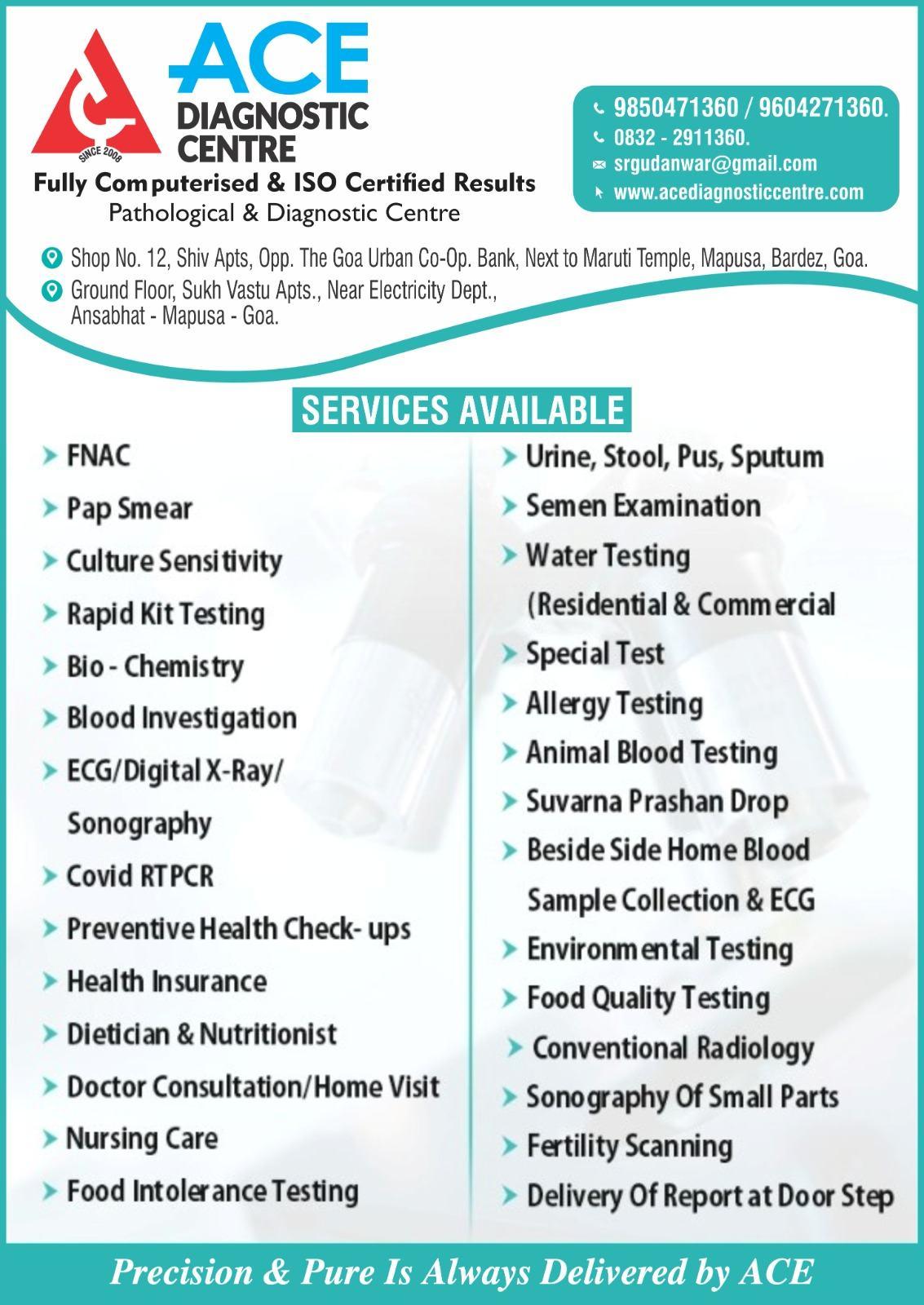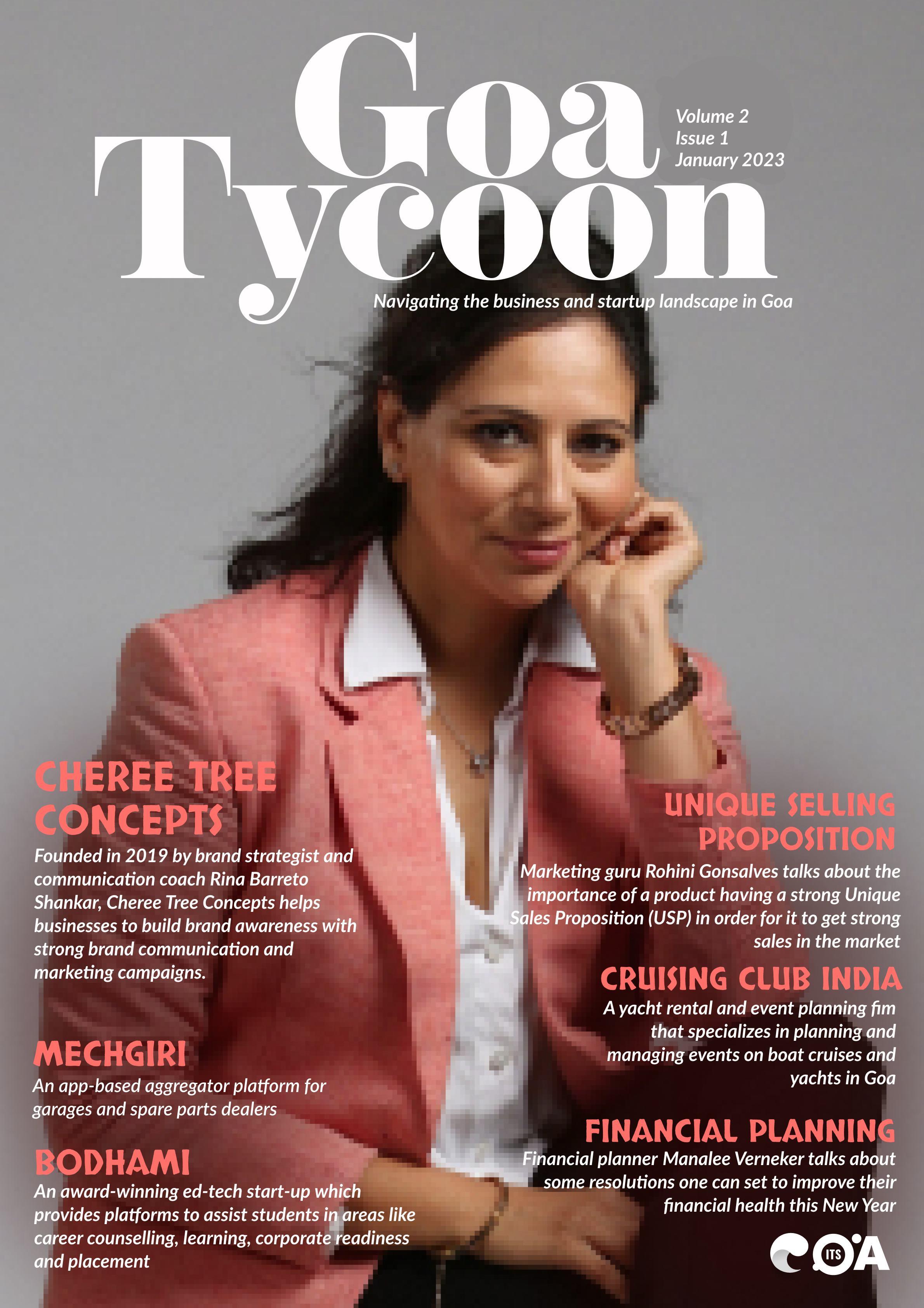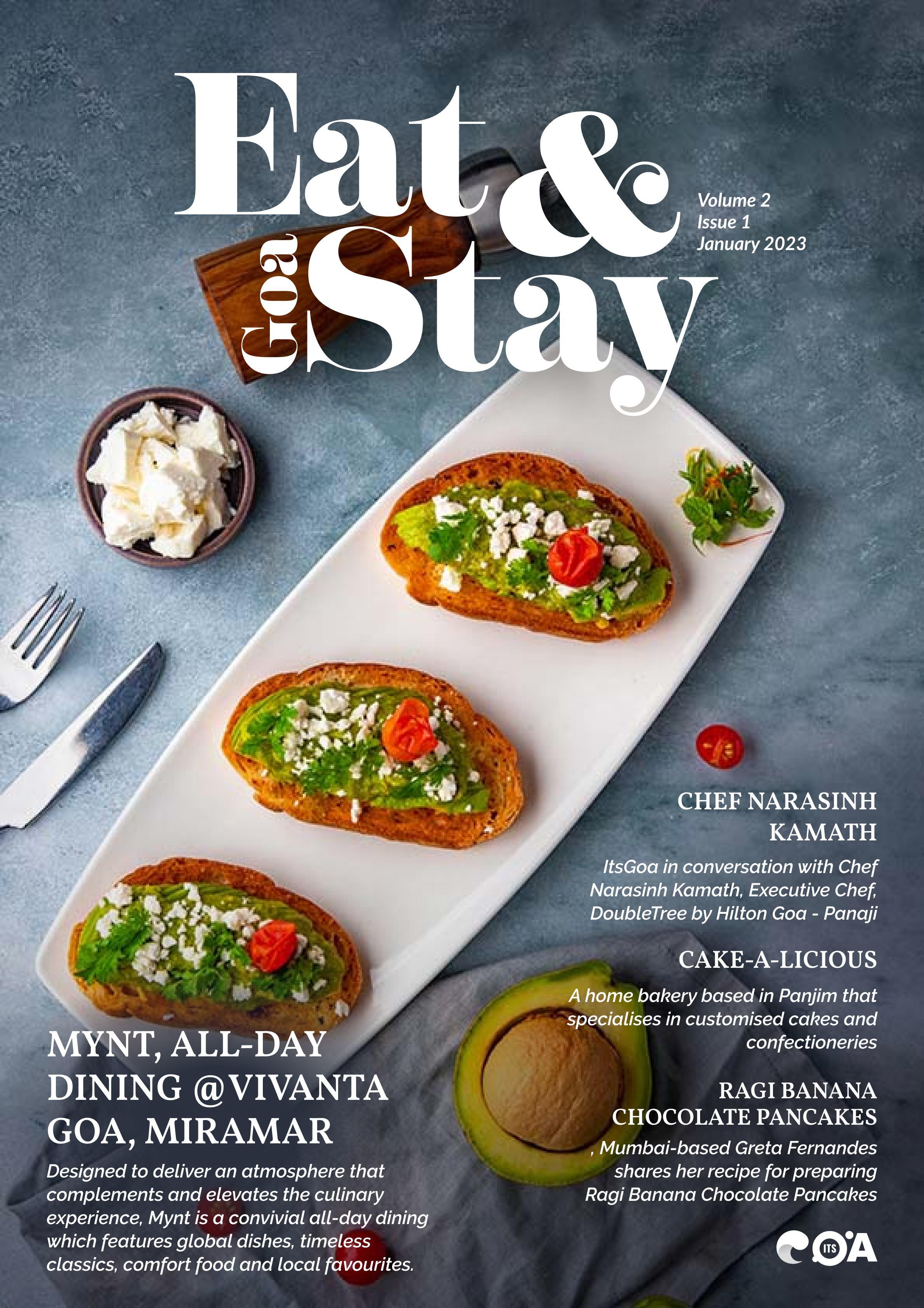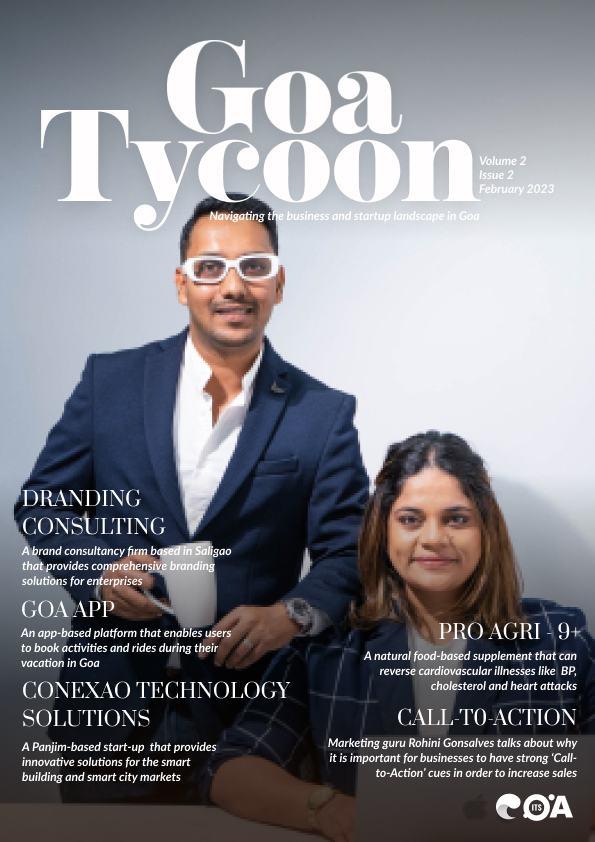Volume 2
Issue 2
February 2025

Volume 2
Issue 2
February 2025
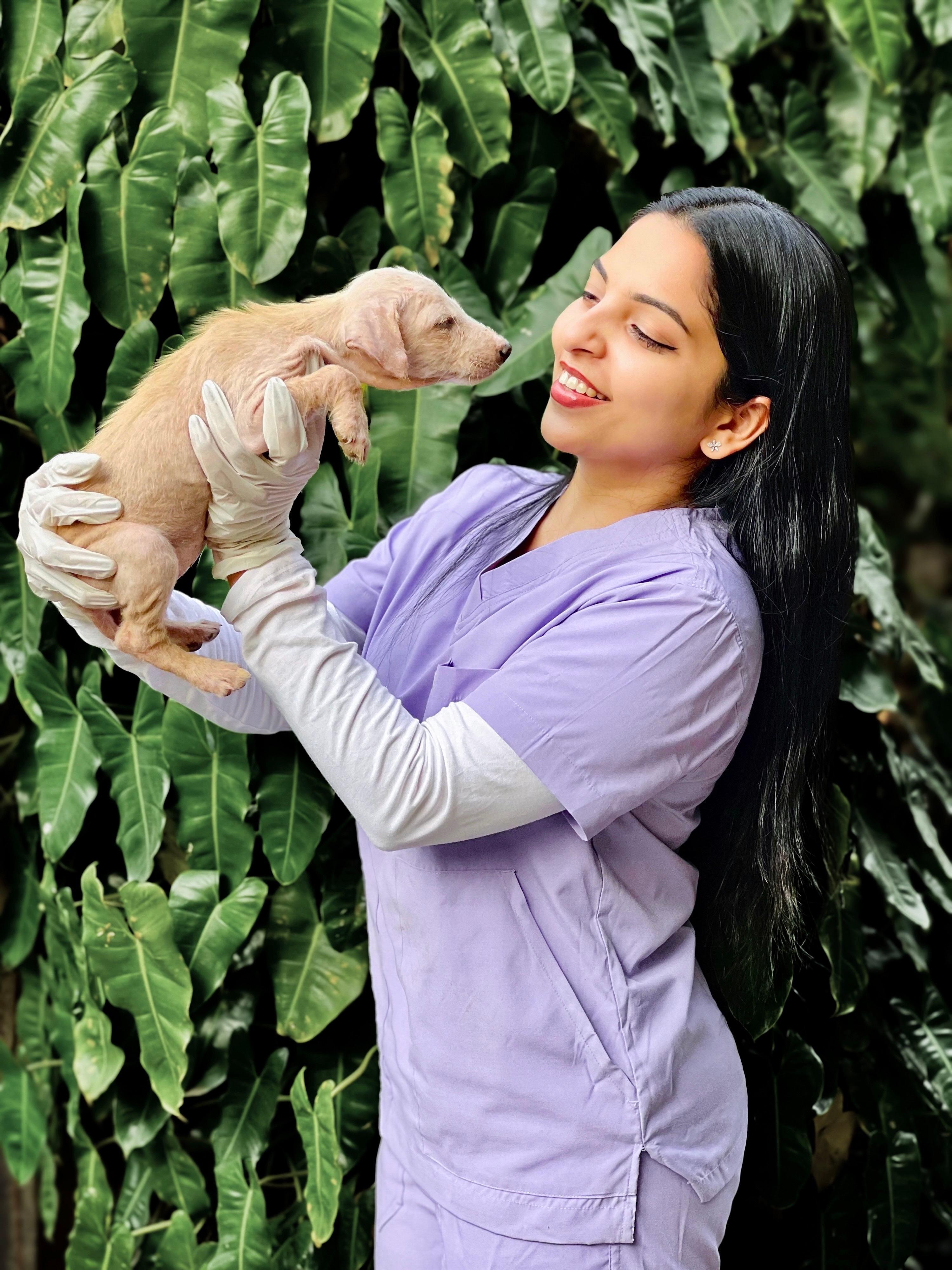
Dr. Divya Sukhaji Naik pioneers integrative veterinary care through Pashu Ayurveda, advancing holistic animal healing.
Dr. Nidhi Agni advances occupational therapy with innovation, advocacy, and education, transforming holistic rehabilitation.
Dr. Saroj Swapnil Salelkar integrates holistic healing, advocacy, and innovation to advance occupational and public health.
Dr. Vyoma Shanbhag pioneers holistic hormonal healthcare with the Hormonal Thrive Method, transforming women's wellness.
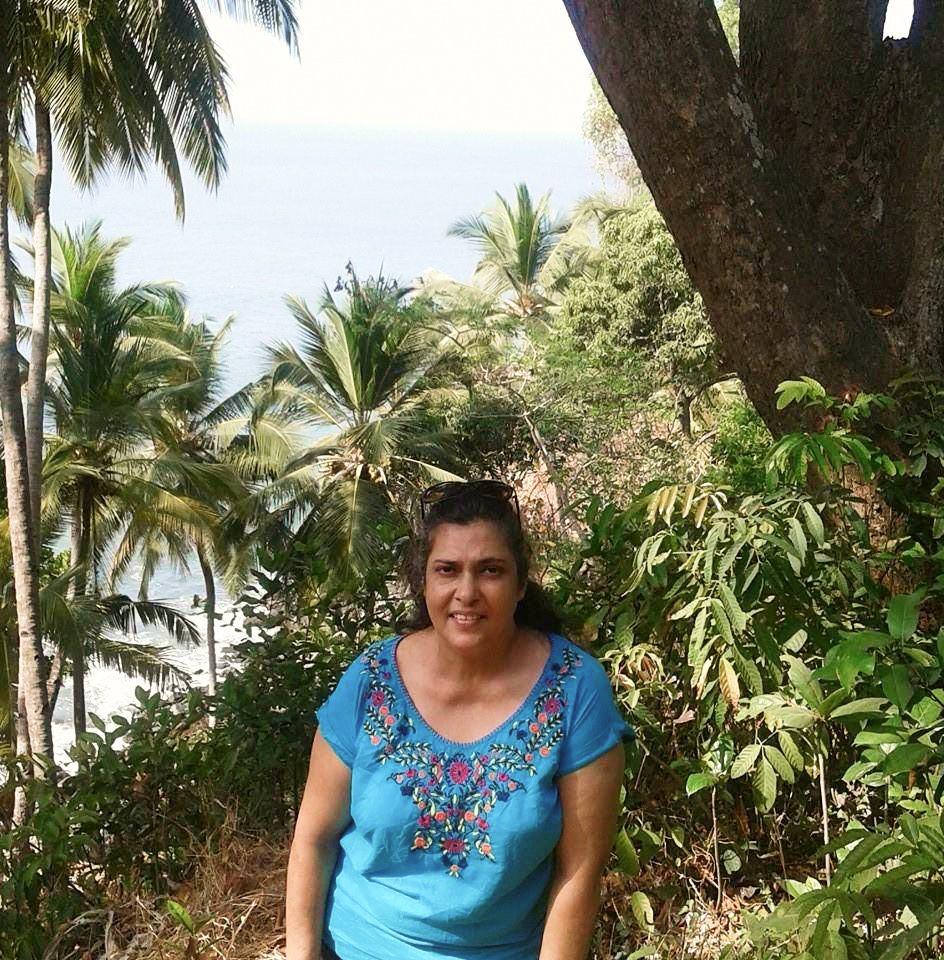
Welcome to this month’s edition of Health & Wellness Goa, where we spotlight groundbreaking contributions in healthcare, wellness, and sustainability, shaping a healthier future for all.
Our cover feature highlights the work of Dr. Divya Sukhaji Naik, who bridges Ayurveda and veterinary care through Pashu Ayurveda. Her dedication to natural healing, alongside collaborations with NGOs and clinical research, is pioneering integrative veterinary medicine. By blending ancient wisdom with modern science, she is revolutionising holistic animal care.
We also bring you the story of Dr. Nidhi Agni, a trailblazer in occupational therapy, whose innovative approaches are transforming rehabilitation. Her expertise spans paediatric, neuro, and geriatric care, making therapy accessible and effective while advocating for greater awareness in holistic healing.
Dr. Saroj Swapnil Salelkar, an Occupational Health Physician, Public Health Specialist, and author, is transforming healthcare through preventive medicine, advocacy, and holistic care. Her work continues to drive innovation in occupational and public health, empowering patients and shaping policies.
Women’s health takes center stage with Dr. Vyoma Shanbhag, a third-generation homeopath revolutionising hormonal healthcare. Her Hormonal Thrive Method addresses the root causes of PCOS, thyroid disorders, and infertility, offering women sustainable and holistic solutions for better health and well-being.
In the realm of nutrition and mindful eating, Chef Md Shahid Hossain, Executive Chef at Taj Cidade de Goa, Horizon, champions the power of superfoods. His culinary expertise transforms nutrient-dense ingredients into delicious, sustainable meals, encouraging mindful consumption that benefits both health and the environment.
Continuing the theme of holistic health, Dr. Joline sheds light on the importance of diet and lifestyle for endometrial health. She emphasises the role of superfoods, hydration, stress management, and essential supplements in enhancing fertility and supporting a healthy pregnancy.
This issue also highlights Goa’s 2025 water challenges, where contamination, overextraction, and climate change impact public health. We explore sustainable solutions like desalination, rainwater harvesting, and infrastructure improvements to ensure longterm clean water access.
We hope their stories inspire you as much as they inspire us to strive for excellence and compassion in our commitment to community health and well-being every day.
Well, that's all I have for you from my desk this month. I hope you enjoy reading this month's issue of Health & Wellness Goa. Do share it with your friends all across the globe.
Until next month, cheers!
Warm regards, Jessyl Fernandez Editor
01
Dr. Divya Sukhaji Naik
02 Dr. Nidhi Agni
03 Dr. Saroj Swapnil Salelkar
04 Dr. Vyoma Shanbhag
05 Superfoods in the Kitchen – Why. How. What.
06 Eat for Implantation: How to Support Your Endometrium Naturally
07 Access to Clean Water and It’s Impact
Goa, the tiniest state on the western coast of India, boasts golden pristine beaches, palmfringed avenues, flavourful food, delicious Portuguese-influenced sweets, and warm, hospitable people. Also known as the Ibiza of India for its partying. A tropical paradise of flora and fauna, from the very famous 'almi' (mushrooms) endemic to its forests, that grow only on the red mud anthills, to the solar prawns that are fished immediately after the monsoons, Goa is unique. Tourists are also attracted to Goa for its cultural heritage - from the famous old Portuguese churches like Se Cathedral in Old Goa, the 16th Century Safa Masjid in Ponda and Shree Mangesha Temple in Mardol, the legendary Arvalem or Pandava Caves where the Pandavas of the Mahabharat fame lived, to its two unique festivalsCarnival and Shigmo. Goa plays host to many festivals - the International Film Festival of India that promotes cinema, the Serendipity Art Festival, Sunburn Music Festival, to name a few. To showcase this varied heritage of culture, art, tradition, food, and people, in 2015 ItsGoa was born. The main aim was to make it the premier portal for all things Goa. We were able to showcase Goa like never before. Soon our blog-based website transcended the virtual space, with the ItsGoa magazine – a sought-after resource for visitors to Goa from countries like Norway, UK, USA, etc.
Chief Editor
Jessyl Fernandez
Sales
Donald Fernandez
Content & Social Media
Saviola Dias
Renata Fernandes
Graphics & Layout
Shashank Parab
Latisha Govekar
For advertising queries: +91 7887330620 / 9370502124
ItsGoa Media Group
Nordic Intent HQ - Floor 3, PDA Colony, Porvorim, Goa 403521
Email: mail@itsgoa.com
Website: itsgoa.com
cover feature
Dr. Divya Sukhaji Naik bridges Ayurveda and veterinary care through Pashu Ayurveda, healing animals naturally. Her work with NGOs and clinical research promotes holistic treatments, advancing integrative veterinary medicine.

www.itsgoa.com itsgoa_ Itsgoa
From a young age, Dr. Divya Sukhaji Naik aspired to become a veterinary doctor. However, due to unforeseen circumstances, she could not pursue this childhood dream. Nevertheless, Ayurveda had always been an integral part of her life, as her family consistently followed its principles and treatments. This deep-rooted connection eventually led her to pursue a career in Ayurveda, making it her second calling.
After completing her graduation, Dr. Naik sought practical experience by joining the clinic of her esteemed professor, Dr. Gautam Khandeparkar. A few months later, an advertisement in the newspaper caught her attention—there was an opening for an AYUSH Medical Officer. Wanting to serve at the grassroots level, she eagerly applied, hoping to extend the reach of Ayurveda to the rural community. This decision proved to be a turning point, allowing her to integrate traditional healing into community healthcare.
During her second year of college, Dr. Naik attended a conference that introduced her to Pashu Ayurveda—the application of Ayurvedic principles in veterinary medicine. This revelation was an emotional breakthrough, as she realised she had a second chance to fulfil her passion for animal care while remaining rooted in Ayurveda.
Despite witnessing the benefits of Ayurveda in her own pets, she lacked the confidence to extend her treatments to a broader range of animals. Moreover, the absence of formal courses and societal acceptance posed significant challenges. However, destiny intervened when she came across a brochure for the World Ayurveda Congress and Arogya Expo, an international conference scheduled for December 2022. Seeing Pashu Ayurveda listed as a subject for both paper and poster

presentations, she felt a deep sense of purpose and motivation. This led her to conduct her first clinical study at Panjim Animal Welfare Society (PAWS), where she successfully treated stray animals suffering from wounds using Ayurvedic medicine.
Her collaboration with PAWS was a defining moment, significantly expanding her exposure to treating stray animals. Previously, her experience was limited to her own pets and a few stray dogs and cats in her locality.
However, PAWS provided her with invaluable insights into the wide spectrum of health issues faced by these animals. This hands-on experience refined her understanding of animal healthcare and strengthened her resolve to continue working in this field.
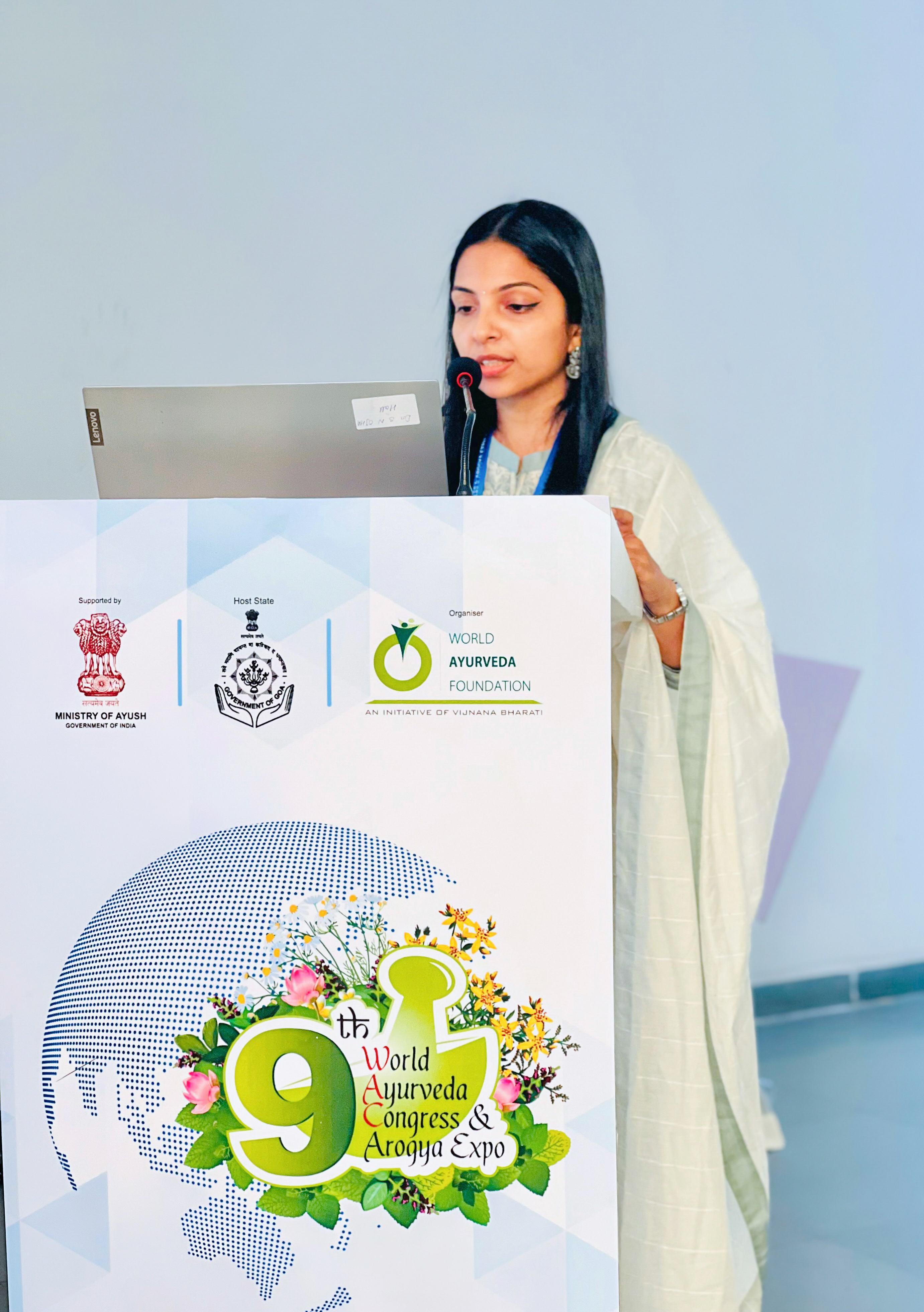
Pashu Ayurveda, an ancient Indian veterinary system, originates from Ayurveda, emphasising holistic animal health. It includes Ashwa Ayurveda (horses), Gaja Ayurveda (elephants), and Go Ayurveda (cows).
Practiced since the Mahabharata era (5000-6000 B.C.), it traces back to early animal domestication (6000-4500 B.C.). Shalihotra, the first known veterinarian, pioneered Ayurvedic animal care.
Unlike Western veterinary medicine, which relies on pharmaceuticals, Pashu Ayurveda uses herbs, minerals, and diet to prevent and treat diseases. With rising concerns over antibiotic resistance, it offers a safer, natural alternative.
Pashu Ayurveda views animals as individuals with unique constitutions, relying on natural remedies like herbs, minerals, and dietary changes to prevent and treat diseases.
Dr. Naik has treated a variety of ailments in animals, including wounds, skin diseases, kidney disorders, arthritis, conjunctivitis, fever, diarrhoea, and vomiting. Each case has reinforced her belief in Ayurveda’s potential to heal animals effectively.
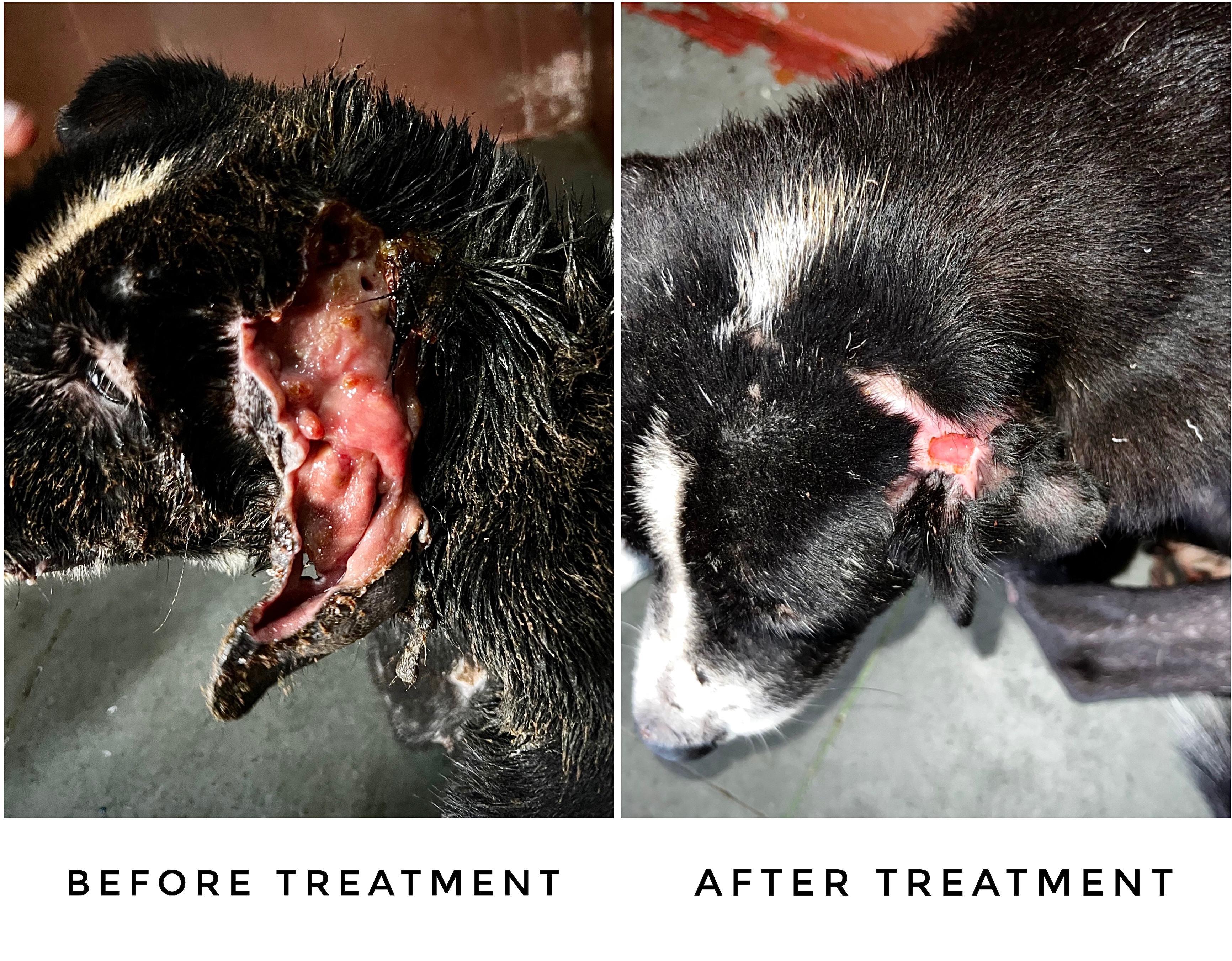
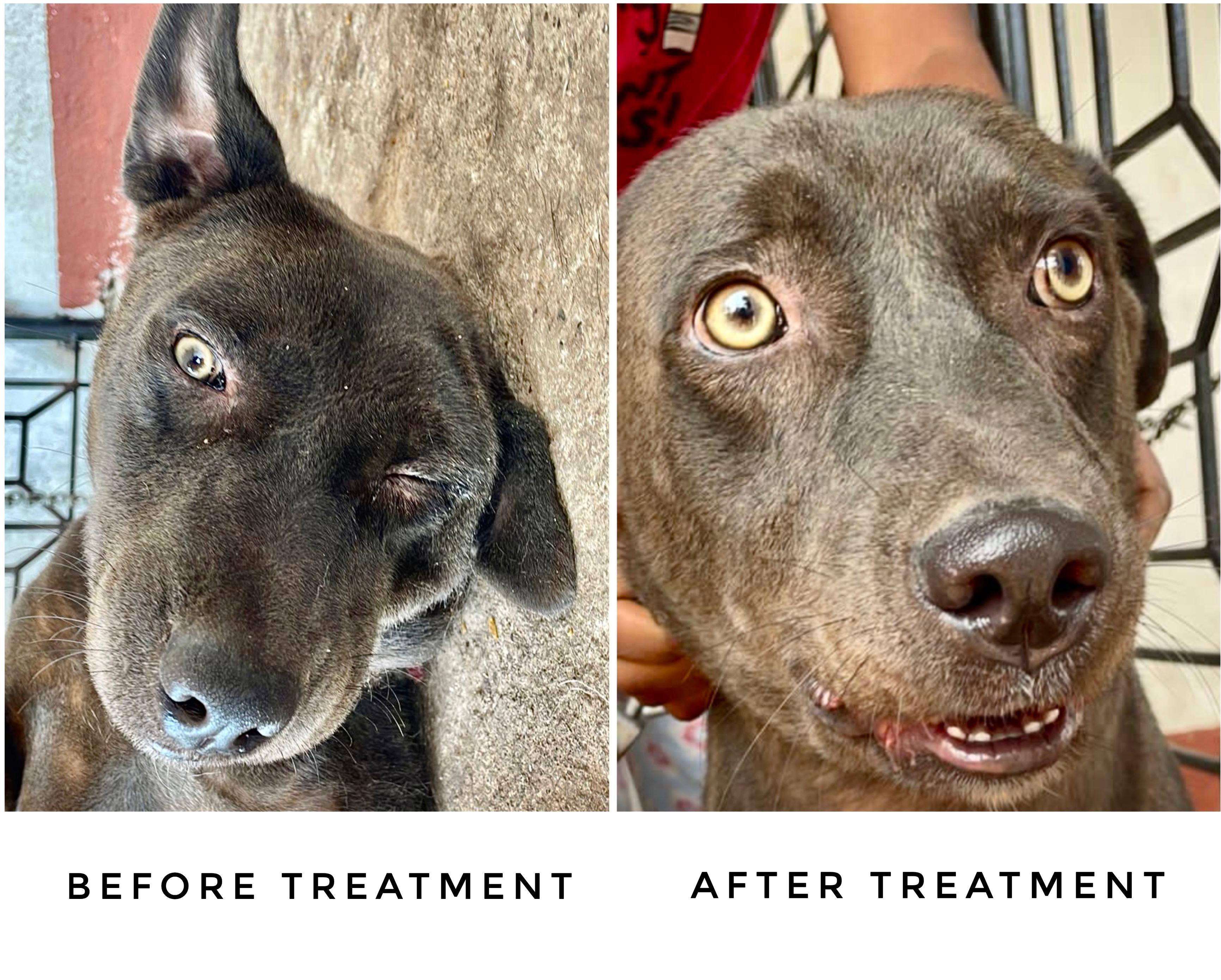
One of her most remarkable cases involved a stray dog with a severe maggot wound on his ear. The infection was so extreme that his ear had become completely disfigured. The challenge was immense, especially since she was still in the early stages of her practice. Yet, she took on the responsibility of healing the wound without the use of antibiotics. Through purely Ayurvedic treatment, she successfully restored the dog’s ear to its original form—a testament to Ayurveda’s power.
Another significant case involved an elderly cat suffering from mange, which had led to extensive hair loss and itching. Regular application of medicated oils, combined with internal Ayurvedic medications, brought about a dramatic transformation.
Similarly, she treated her own 13-year-old dog suffering from recurring kidney stones. Given his advanced age, surgery was no longer an option. Ayurvedic treatment alleviated his distress, improving his condition and quality of life.
Moreover, she successfully treated a dog with conjunctivitis using an Ayurvedic eyewash that could be easily prepared at home. The pet parent was astounded by the results, proving that Ayurveda can offer accessible and effective solutions for common ailments.
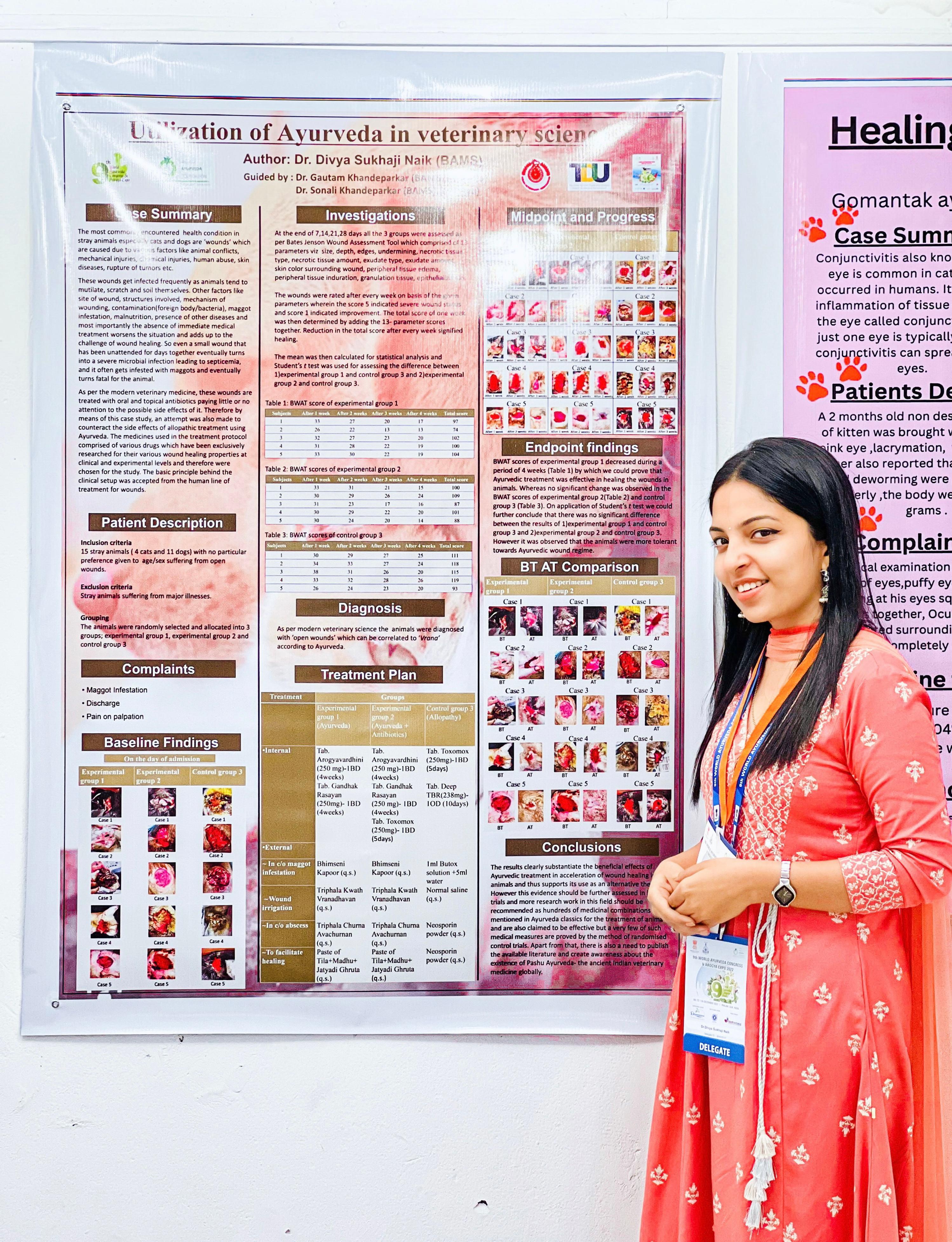
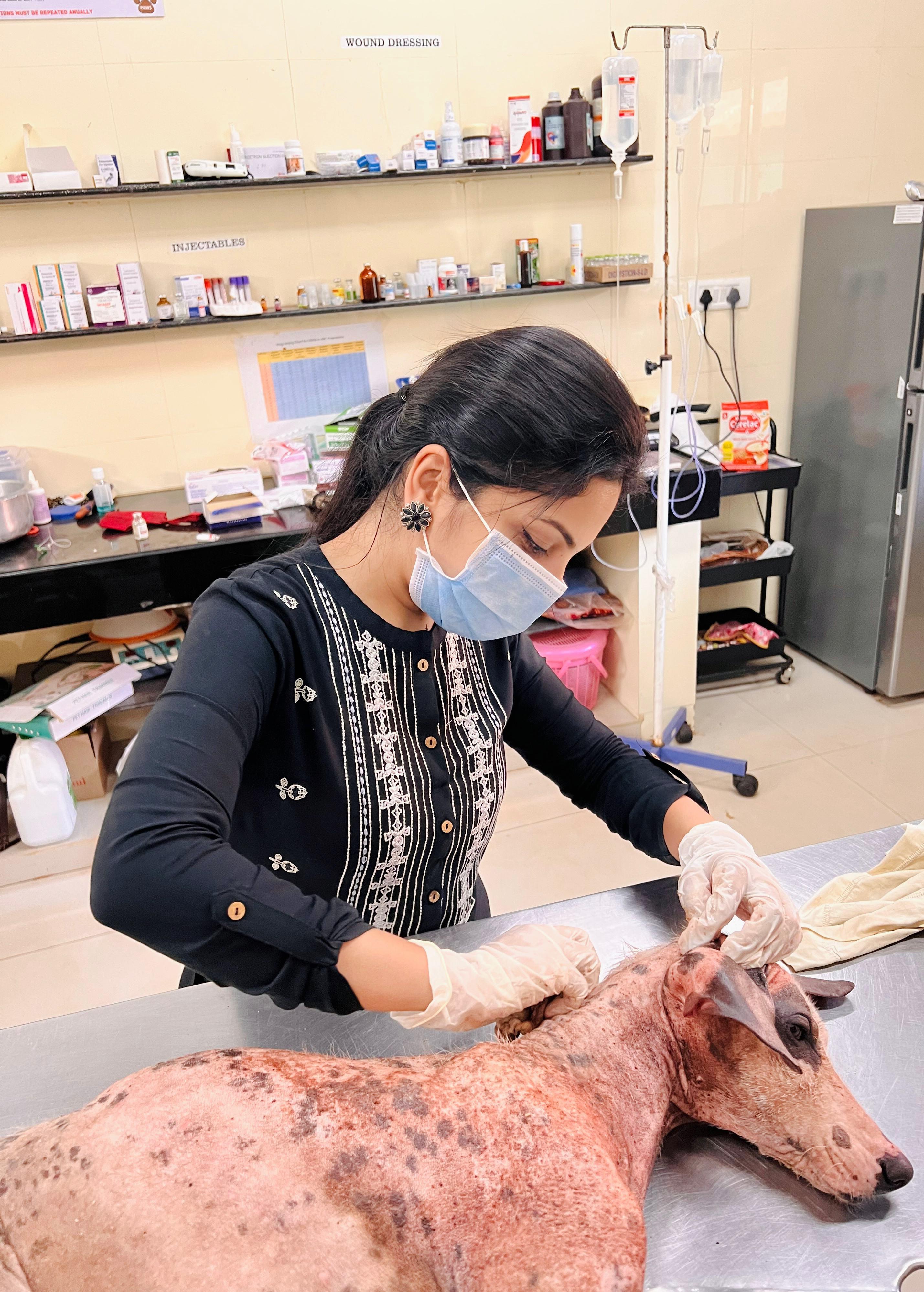
One of the most persistent challenges Dr. Naik faces is administering internal medications to stray animals. Many are sensitive to the bitter taste of Ayurvedic herbs, making oral administration difficult. Additionally, external applications can be challenging since some animals resist treatment due to fear or discomfort. However, once trust is established, these hurdles diminish significantly.
Diagnosing conditions like kidney disease, arthritis, or conjunctivitis requires a thorough approach. Since most cases she receives have already been diagnosed by veterinarians, her role is to offer a safer alternative treatment. She carefully considers factors such as breed, age, past medical history, environment, lifestyle, and food habits to craft personalised treatment plans. Tongue diagnosis (Jivha Parikshan) plays a crucial role in assessing an animal's constitution (Prakriti), digestive function (Agni), and imbalance of doshas.
Animals possess an innate ability to seek out healing plants in nature, demonstrating a deep-rooted connection to herbal remedies. Dr. Naik harnesses this instinct by preparing customised Ayurvedic formulations in various forms, such as pastes, oils, and decoctions, tailored to each animal’s specific condition.
As an AYUSH Medical Officer in a rural village, she not only serves human patients but also extends her expertise to animals. Since veterinary hospitals are scarce in these areas, she provides basic treatments while advising pet owners on further care.
Beyond her official duties, she actively volunteers at PAWS and participates in rescuing distressed animals, treating those she can at home.
Future of Pashu Ayurveda
Ayurveda is steadily gaining recognition in veterinary medicine, particularly on a global scale. The growing problem of antibiotic resistance and concerns about chemicals in food-producing animals are driving the need for alternative approaches. Furthermore, as many pet parents have started to witness the positive impact of Ayurveda on their animals health, they are increasingly accepting and embracing this holistic approach, recognising its potential to improve the lives of their beloved pets.
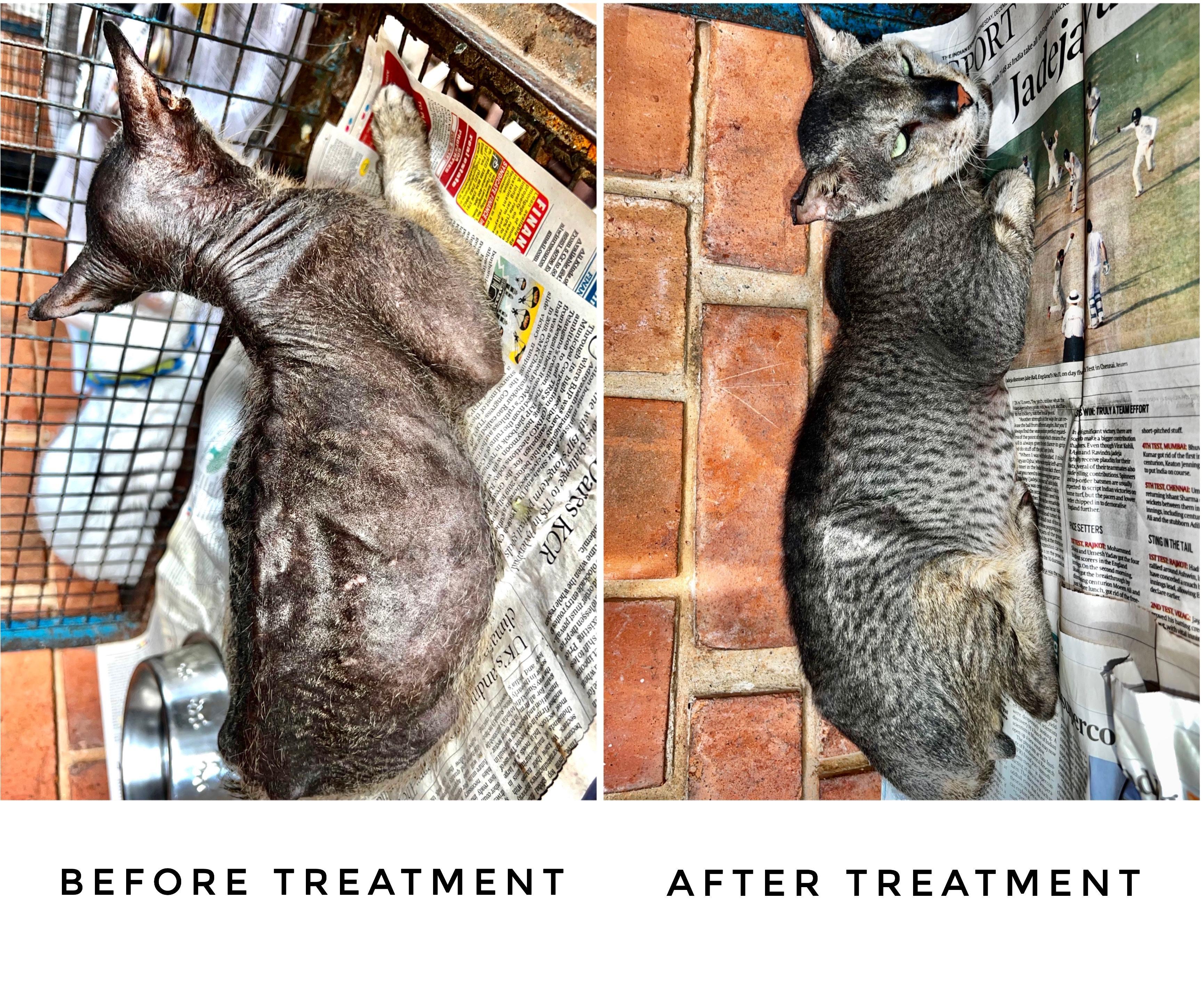
Looking ahead, Dr. Naik plans to collaborate with more NGOs to provide free treatment for stray animals. She also aims to introduce Panchakarma therapies for paralysed animals, hoping to improve their quality of life. Additionally, she aspires to conduct clinical research to further the field of Pashu Ayurveda.
For pet parents interested in Ayurveda, she strongly advises against experimenting with herbs without proper knowledge. Incorrect dosages or unsuitable formulations can lead to adverse reactions. Consulting a qualified Ayurvedic doctor with expertise in animal care is essential for safe and effective treatment.
To aspiring Ayurveda practitioners, she recommends building on their foundational knowledge while collaborating with veterinarians who support integrative medicine.
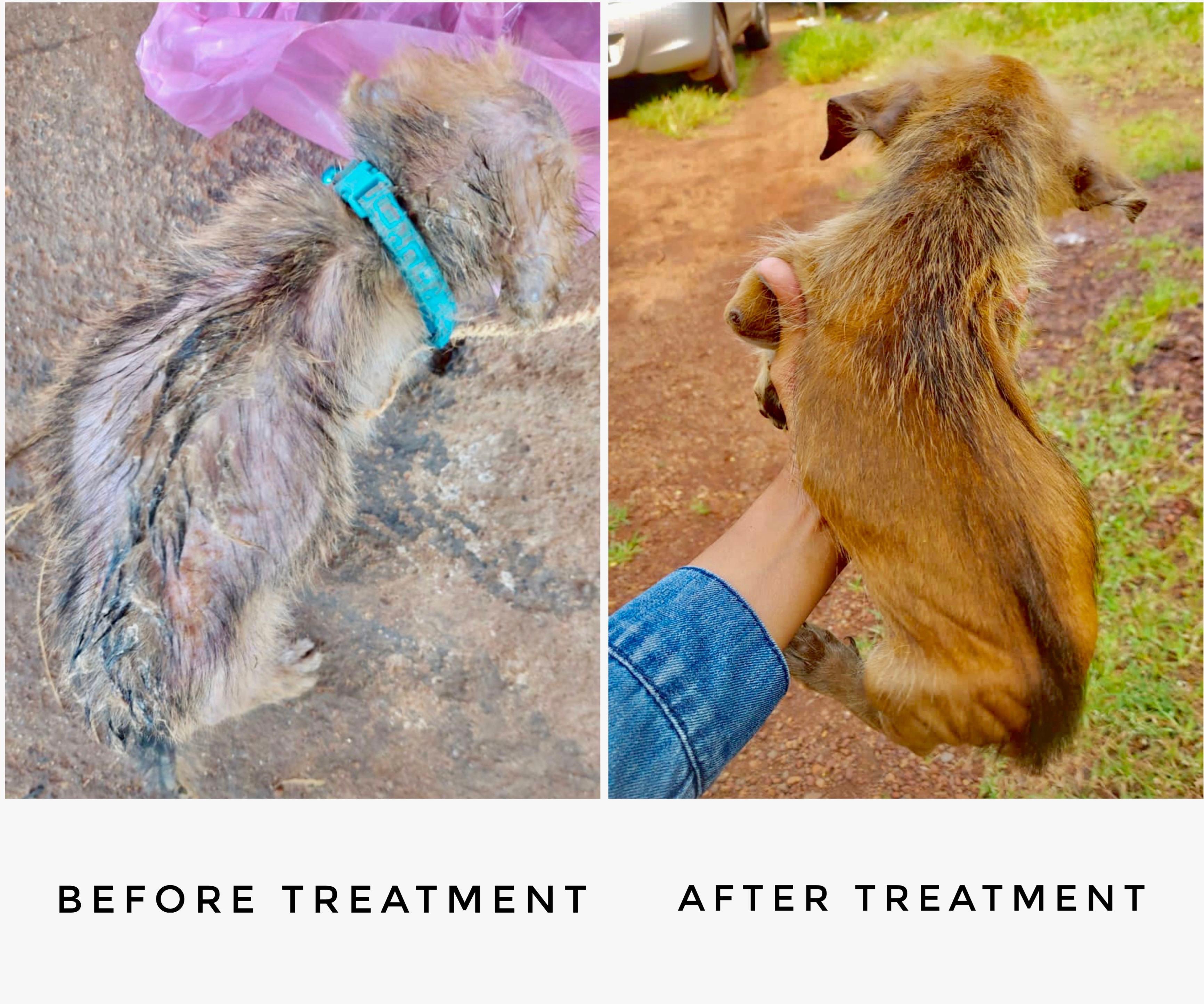
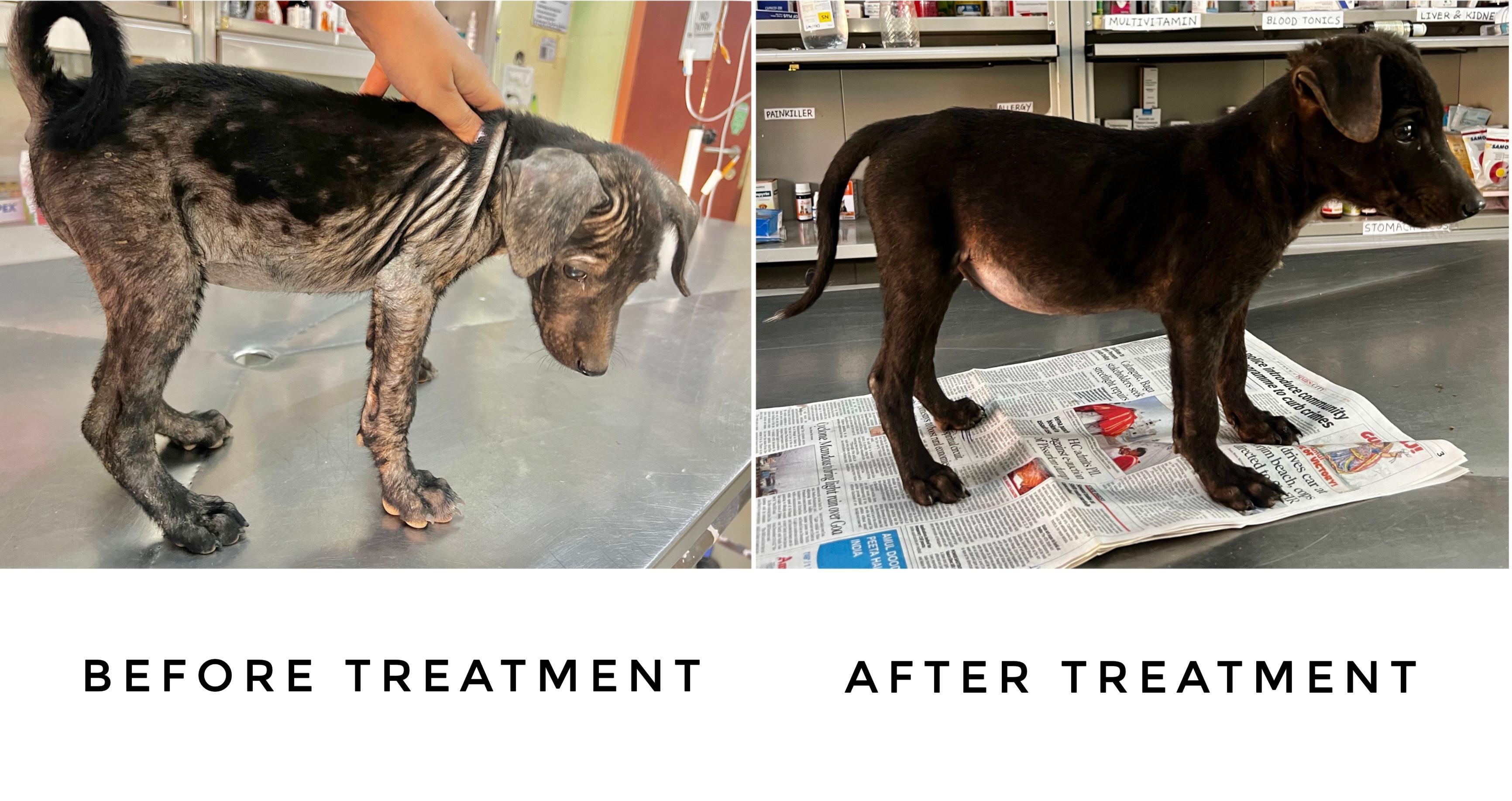
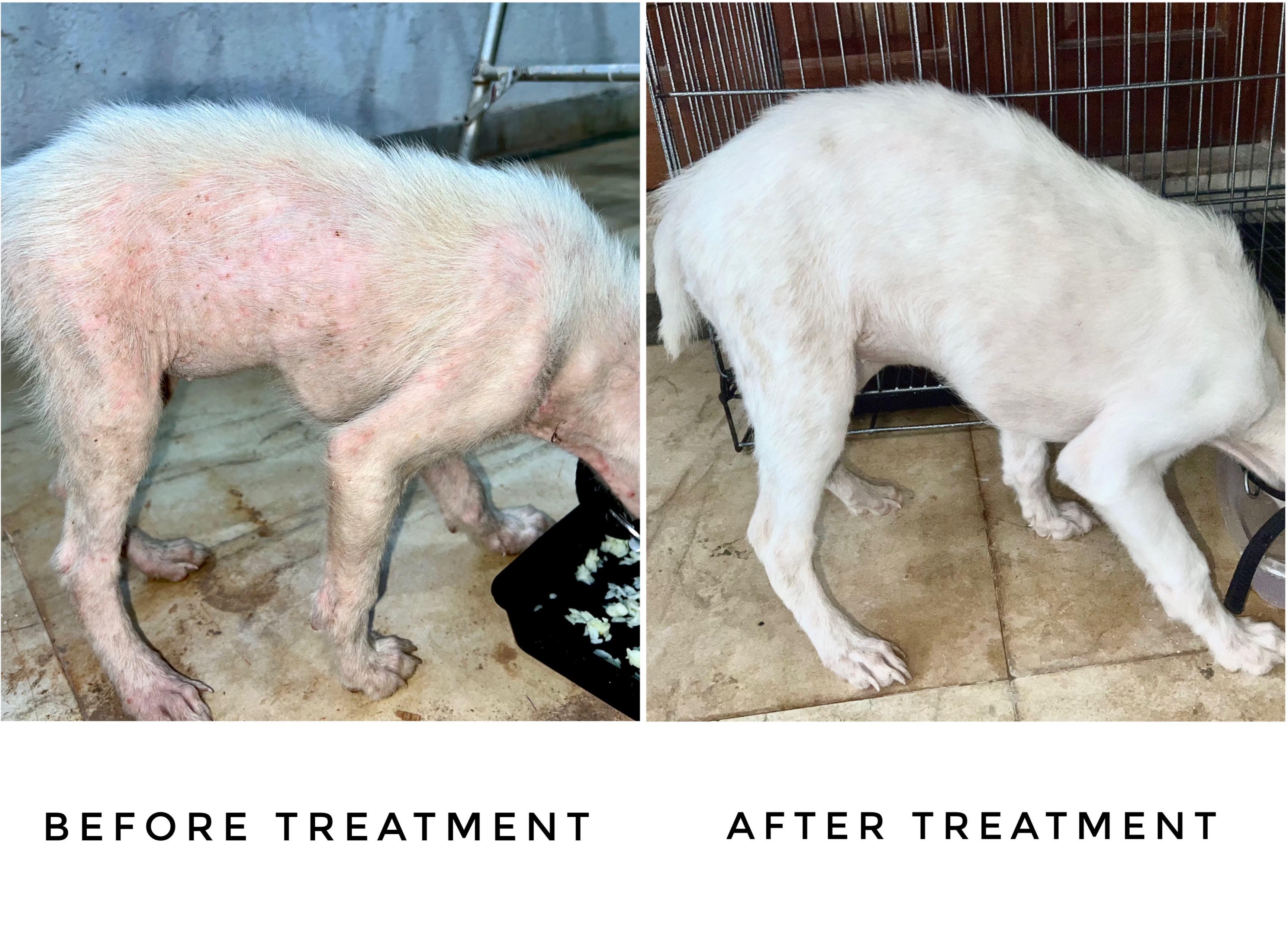
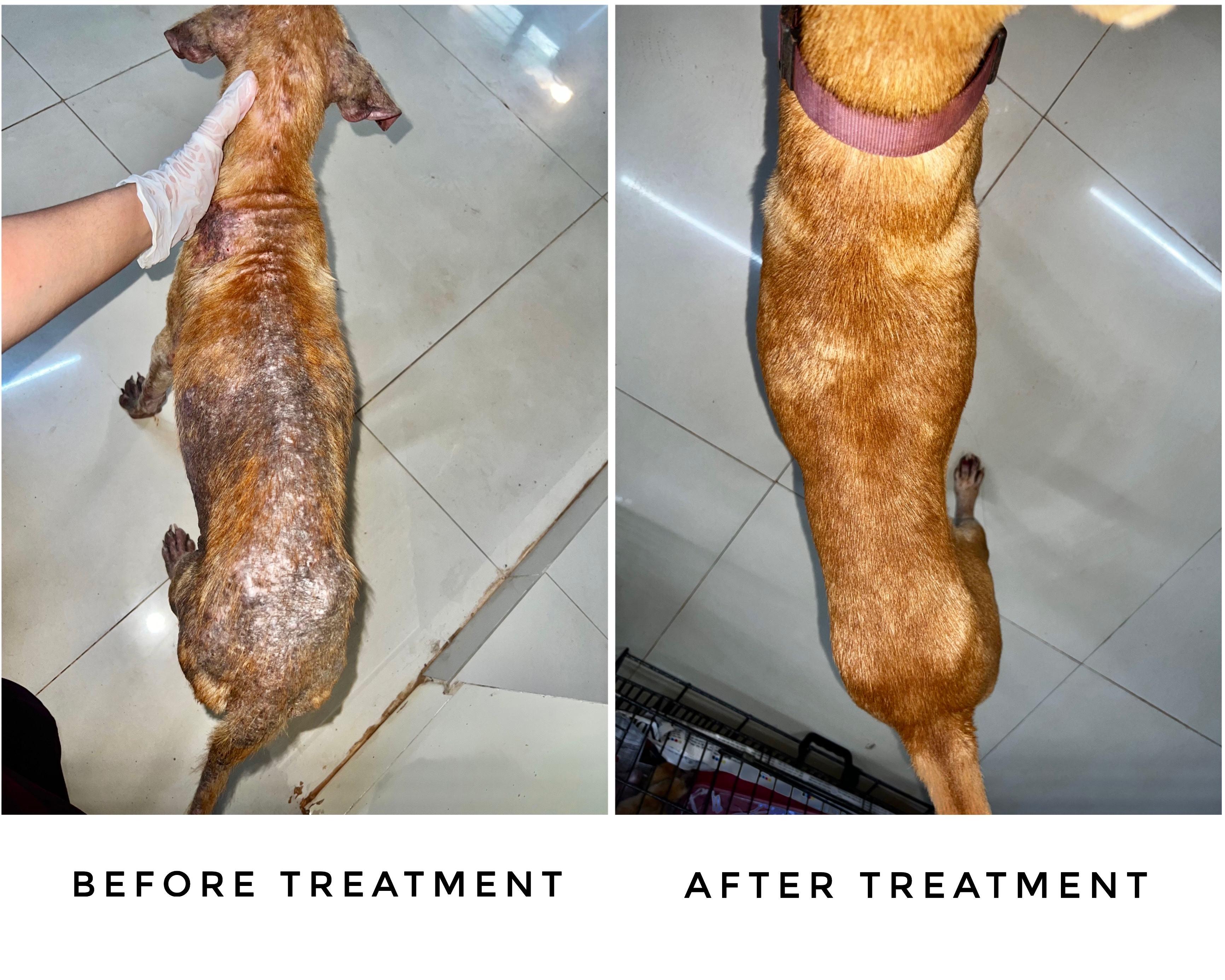
Attending workshops, conferences, and staying updated with research can help advance this field further.
Conclusion: A Journey of Passion and Fulfilment
Dr. Divya Naik’s journey is an inspiring testament to the power of determination and passion. Though she could not become a veterinarian, she found a way to merge her love for animals with Ayurveda, bringing healing to countless creatures.
Each time she witnesses an animal recover, she feels an unparalleled sense of fulfilment— one that reaffirms her purpose and drives her to continue making a difference in the world of veterinary Ayurveda.
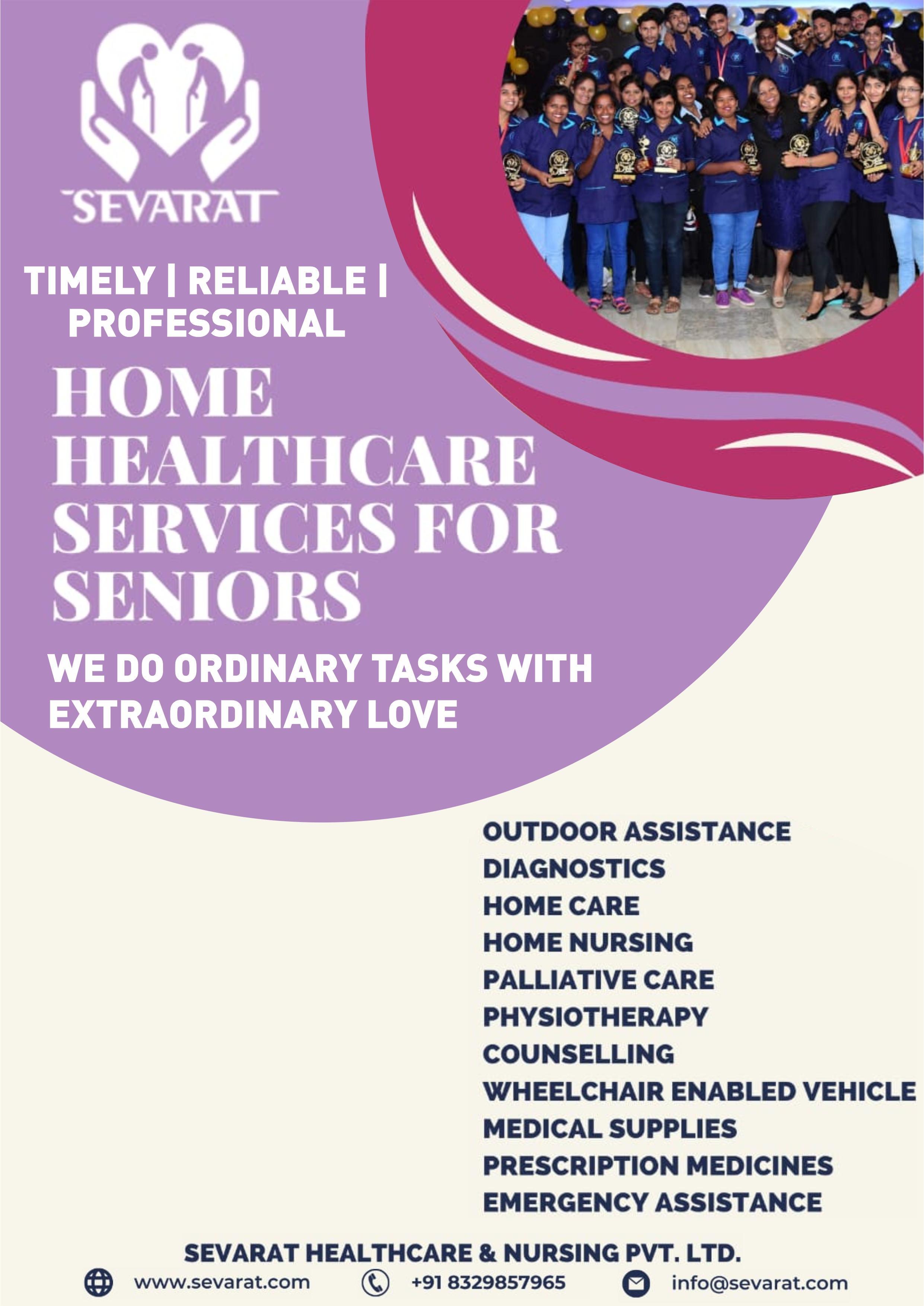
Occupational Therapy
Dr. Nidhi Agni, a pioneer in occupational therapy, advances holistic rehabilitation through innovation, advocacy, and education, transforming lives across paediatric, neuro, and geriatric care while promoting accessibility and awareness.

www.itsgoa.com itsgoa_ Itsgoa
Dr. Nidhi Agni: A Pioneer in Occupational Therapy and Holistic Rehabilitation
Occupational therapy is a crucial yet often under appreciated field of healthcare that focuses on enabling individuals to lead independent and fulfilling lives despite physical, cognitive, or developmental challenges.
One of the most distinguished figures in this domain is Dr. Nidhi Agni, a dedicated and accomplished occupational therapist who has significantly contributed to improving the quality of life for countless individuals. Her work spans various aspects of rehabilitation, including paediatric intervention, neurorehabilitation, and geriatric care, making her a leading advocate for patient-centric therapy.
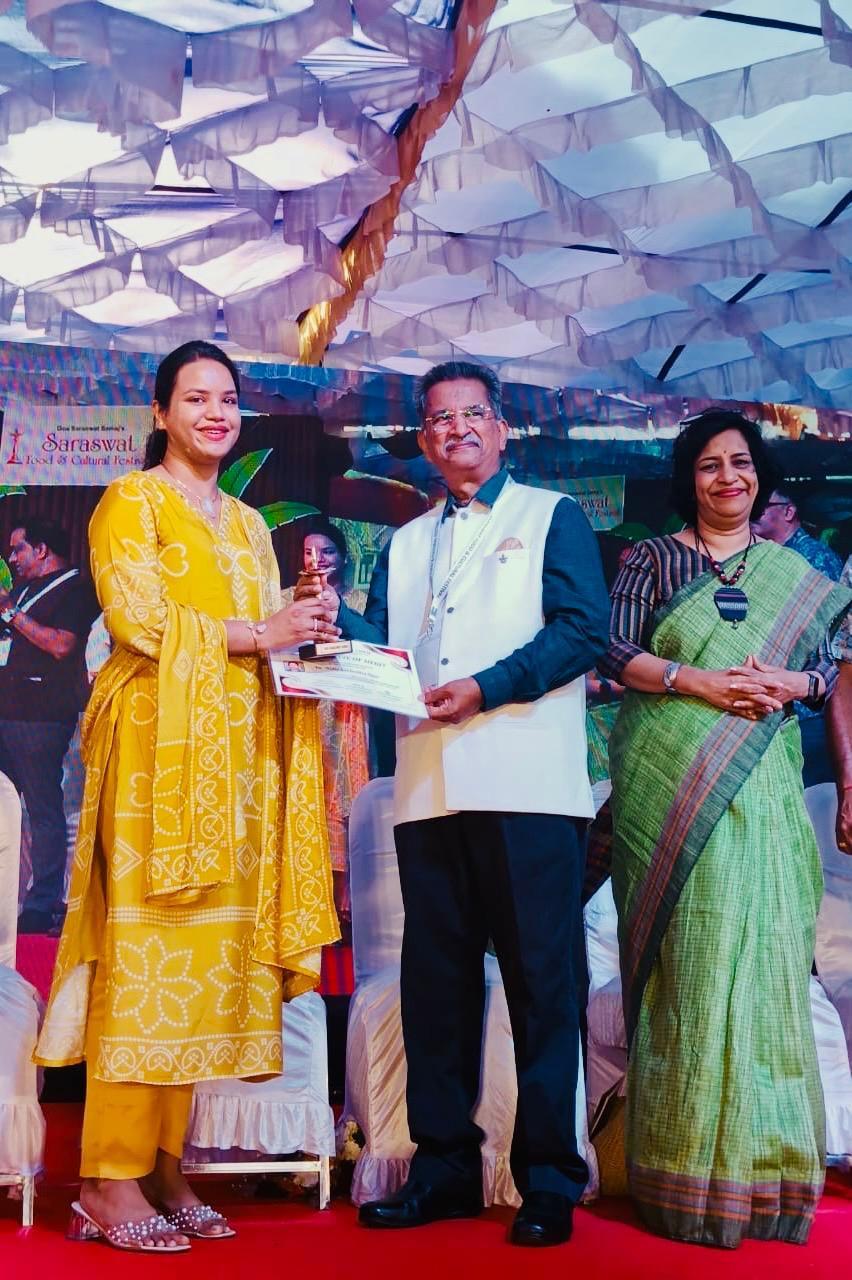
Dr. Nidhi felicitated for 75% in post-graduation
Dr. Nidhi Agni’s journey into the field of prestigious institution, followed by advanced studies that equipped her with the knowledge and expertise required to handle complex cases.
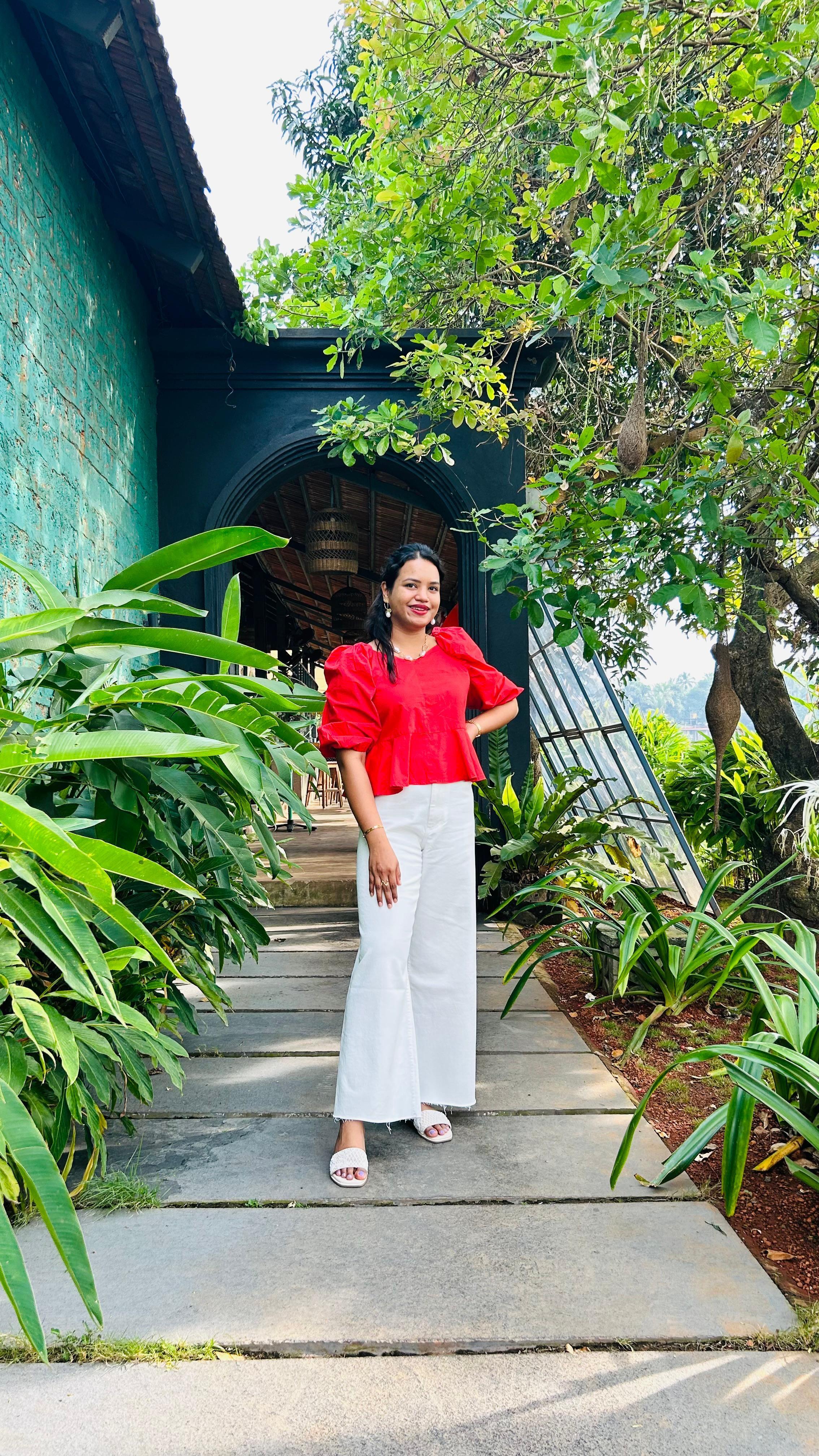
The path to becoming an occupational therapist typically begins with an undergraduate degree in Occupational Therapy (B.O.T), which includes four years of study followed by a six-month internship. Upon completion, graduates are awarded their degree.
Dr. Nidhi earned her B.O.T from Goa Medical College and Hospital (GMC), Bambolim, Goa, and later pursued a master’s degree in Occupational Therapy with a specialization in Neurosciences at SRM College of Occupational Therapy, SRM Institute of Science and Technology (SRMIST).
This two-year program provided specialized knowledge, training, and hands-on clinical experience in subjects like anatomy, physiology, psychology, and neurorehabilitation.
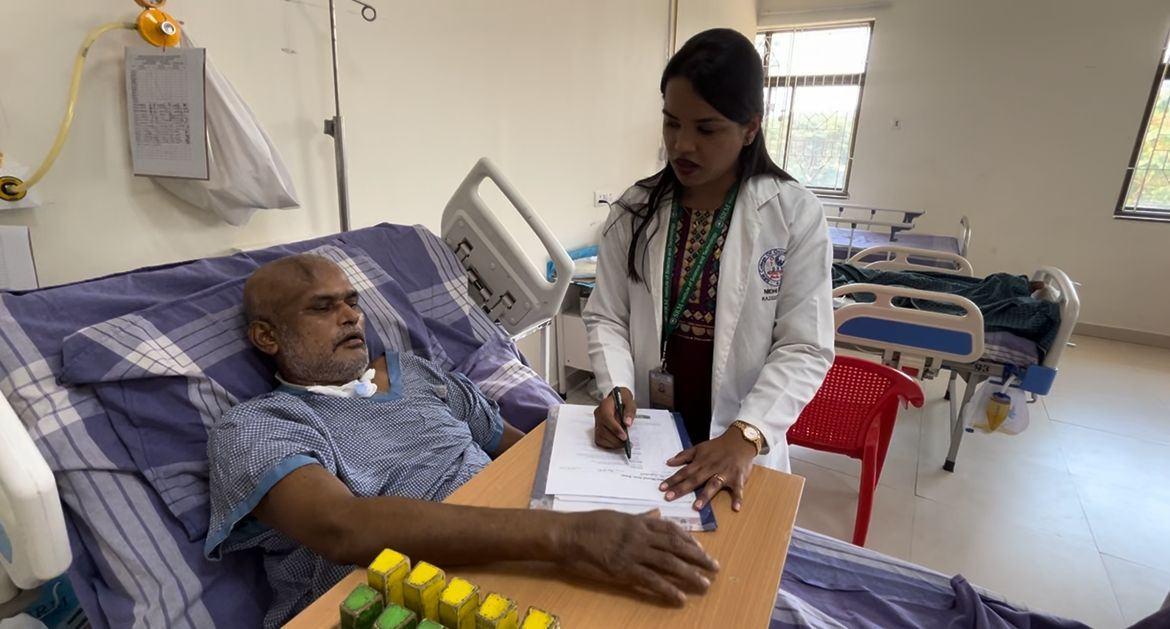
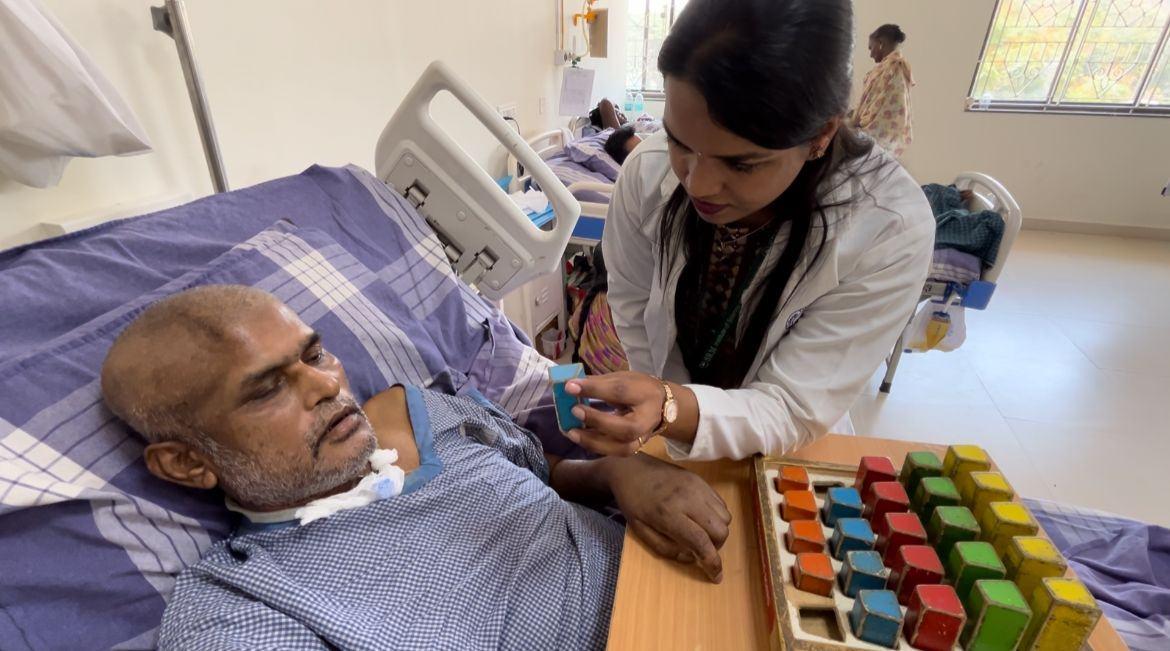
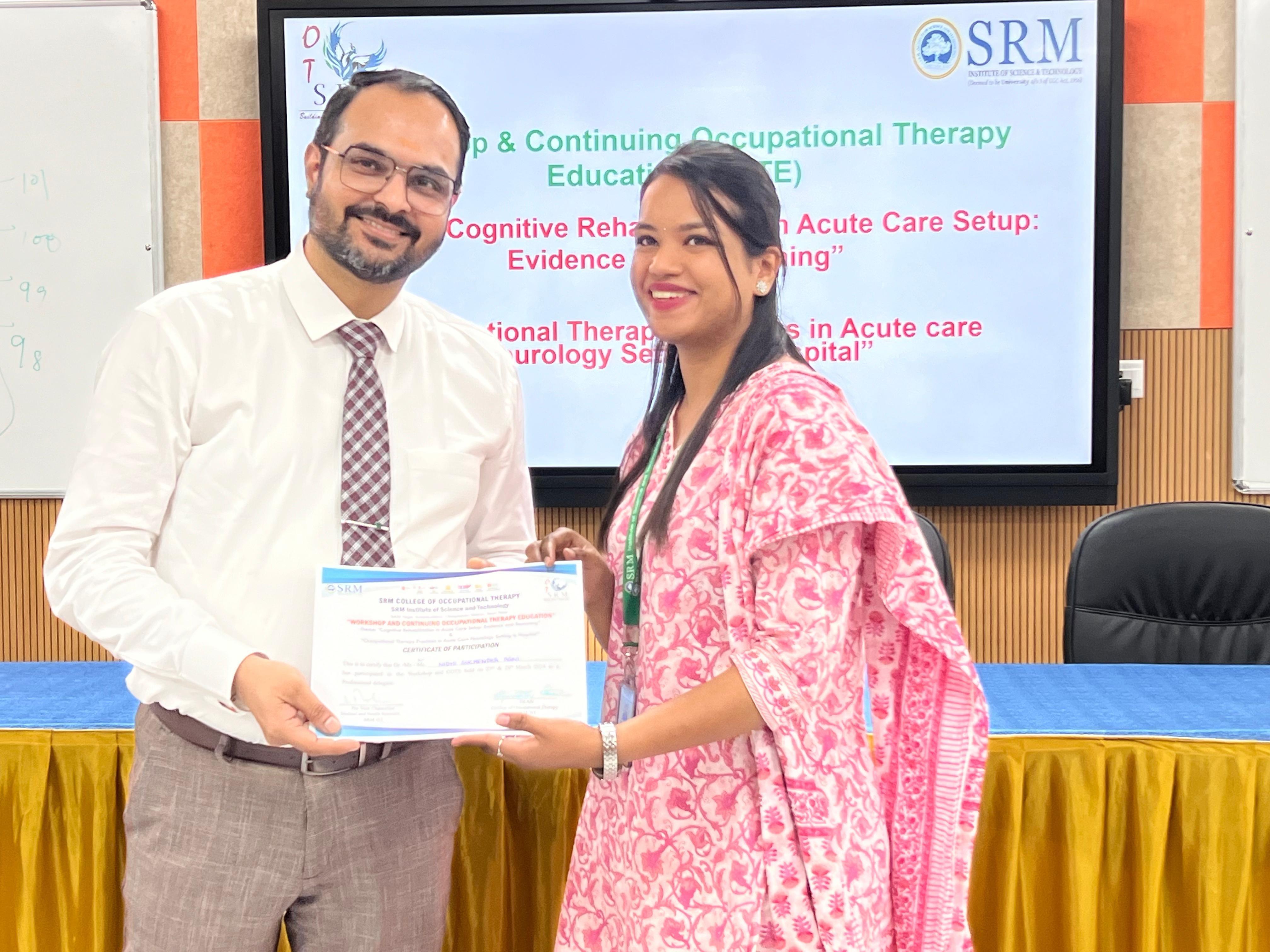
Dr. Agni’s approach to occupational therapy is rooted in the philosophy that every individual deserves a personalised rehabilitation plan tailored to their unique needs. She believes in a multidisciplinary approach, working closely with families, caregivers, and other healthcare professionals to ensure holistic care for her patients.
Her therapy sessions are not just about addressing physical limitations; they encompass emotional well-being, cognitive development, and social integration, which are essential aspects of overall rehabilitation.
In paediatric intervention, Dr. Agni specialises in helping children with developmental disorders, such as autism spectrum disorder (ASD), cerebral palsy, and learning disabilities. She employs play-based therapy and sensory integration techniques to enhance motor skills, communication, and social interaction.
Her empathetic nature and ability to connect with children make her an invaluable resource for parents seeking guidance and support.
Neuro-rehabilitation is another area where Dr. Agni has made a significant impact. She has worked extensively with patients recovering from stroke, traumatic brain injuries, and neurological conditions like multiple sclerosis and Parkinson’s disease. Her therapy programs focus on improving mobility, coordination, and daily living skills, enabling patients to regain independence and confidence in their abilities.
Additionally, her contributions to geriatric care have been instrumental in enhancing the quality of life for elderly individuals facing agerelated cognitive and physical decline. She designs specialised interventions that help seniors maintain their autonomy, prevent falls, and manage chronic conditions effectively.

Nidhi delivered a faculty talk on “The Role of Occupational Therapy in Palliative Care.”
Dr. Nidhi Agni is known for her innovative approaches that blend traditional therapeutic methods with modern technology. She has been a strong advocate for the integration of assistive devices, virtual reality, and adaptive equipment in therapy sessions to maximise patient engagement and effectiveness. Her research on the use of technology in rehabilitation has been widely recognised and has set a precedent for the future of occupational therapy.
Beyond her clinical practice, Dr. Agni is also a prolific educator and mentor. She has delivered seminar talks to promote OT awareness. Her ability to break down complex concepts into practical applications has made her a sought-after speaker at conferences and seminars.
She firmly believes that educating others about the importance of occupational therapy will lead to greater awareness and accessibility of these services in healthcare settings.
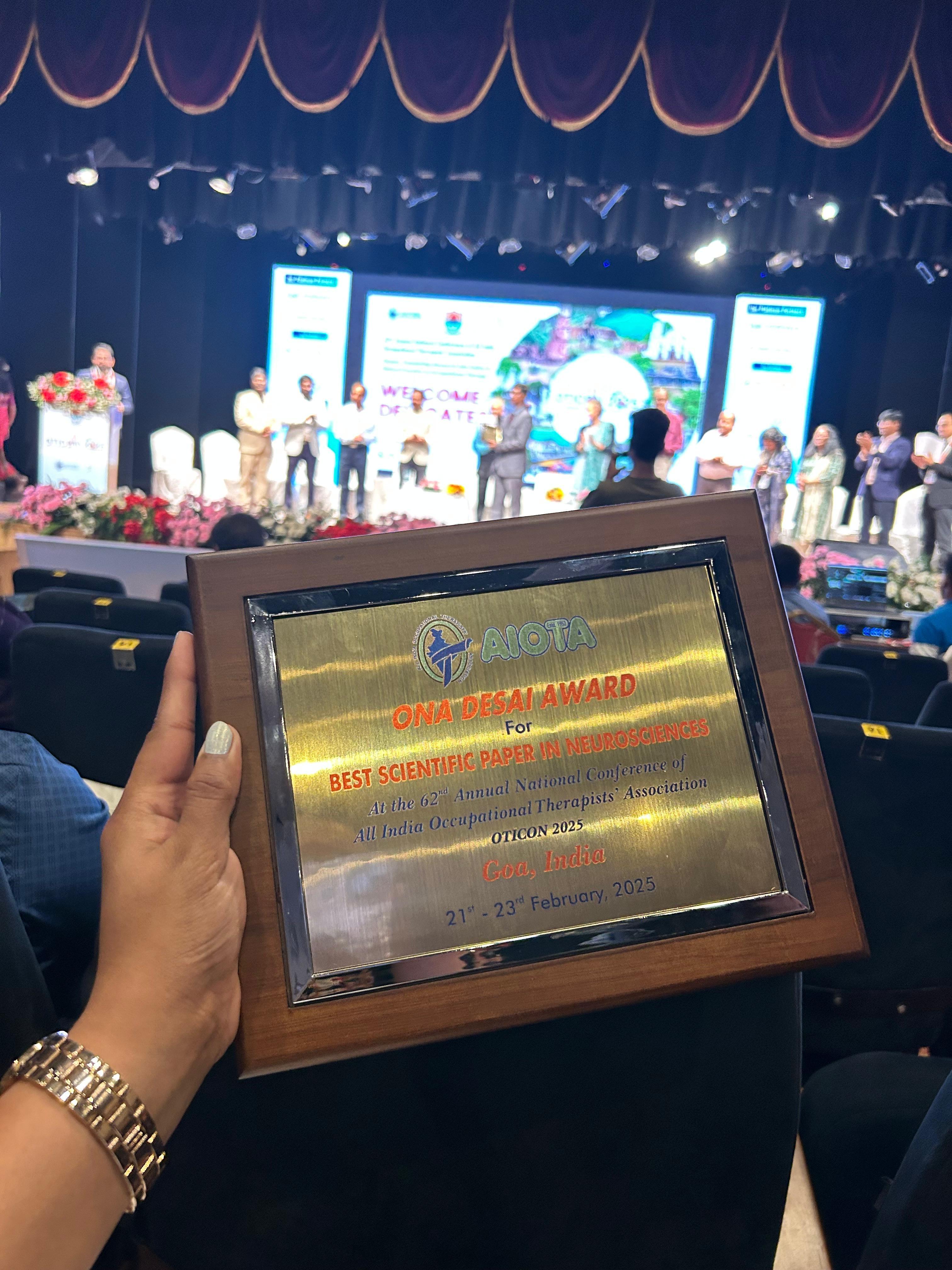
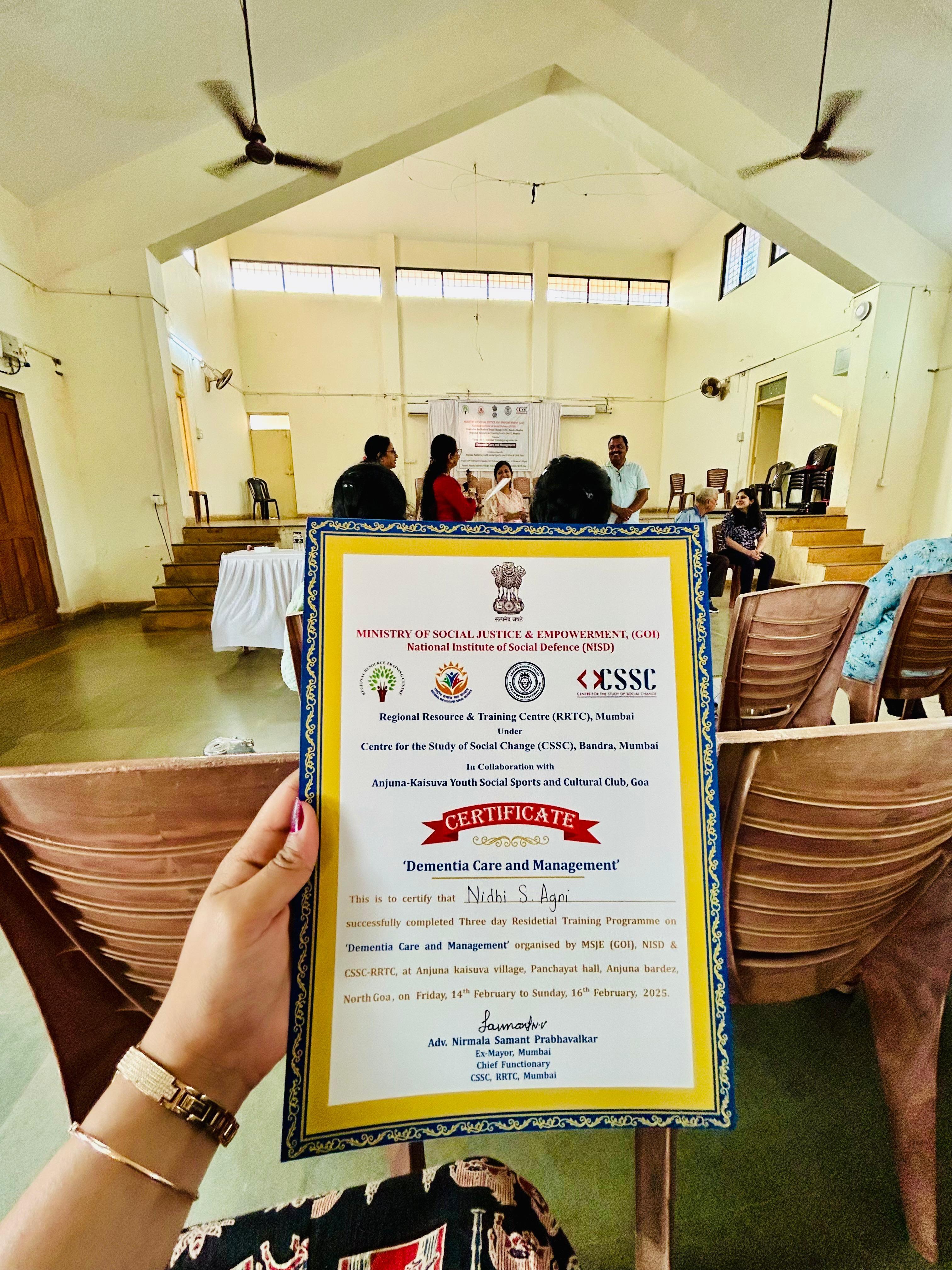
Dr. Agni’s influence extends beyond her professional practice, as she actively participates in social initiatives aimed at making occupational therapy more accessible to underprivileged communities.
While serving as a bond server at Hospicio, South Goa District Hospital, Dr. Nidhi took the initiative to promote occupational therapy services at Provedoria Old Age Home in Margao.
Her advocacy efforts also focus on raising awareness about occupational therapy and its role in improving daily life. Through articles, public speaking engagements, she educates people about the significance of early intervention and the impact of therapy on long-term well-being.
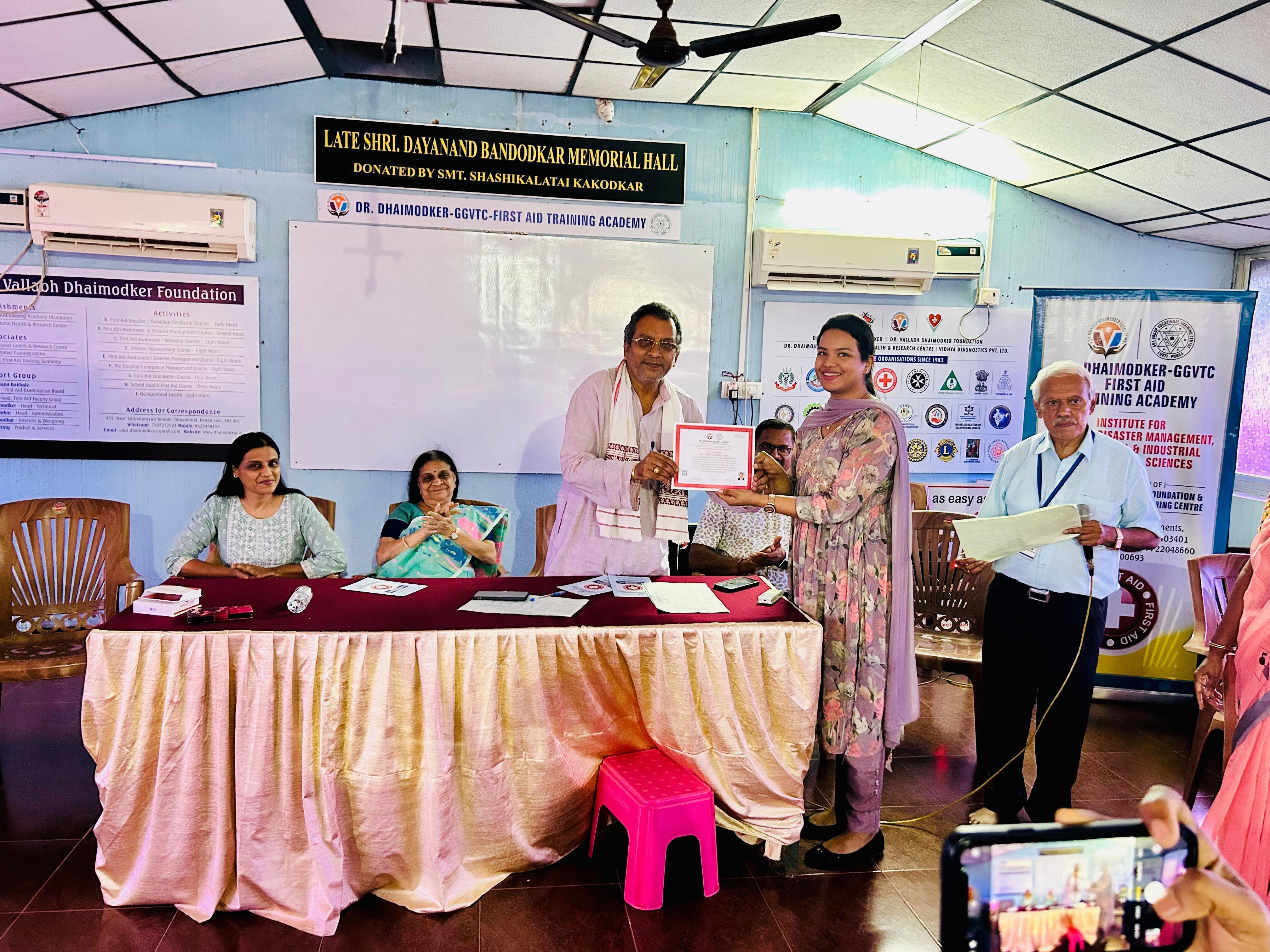
Successfully completed 40-hour First Aid Training
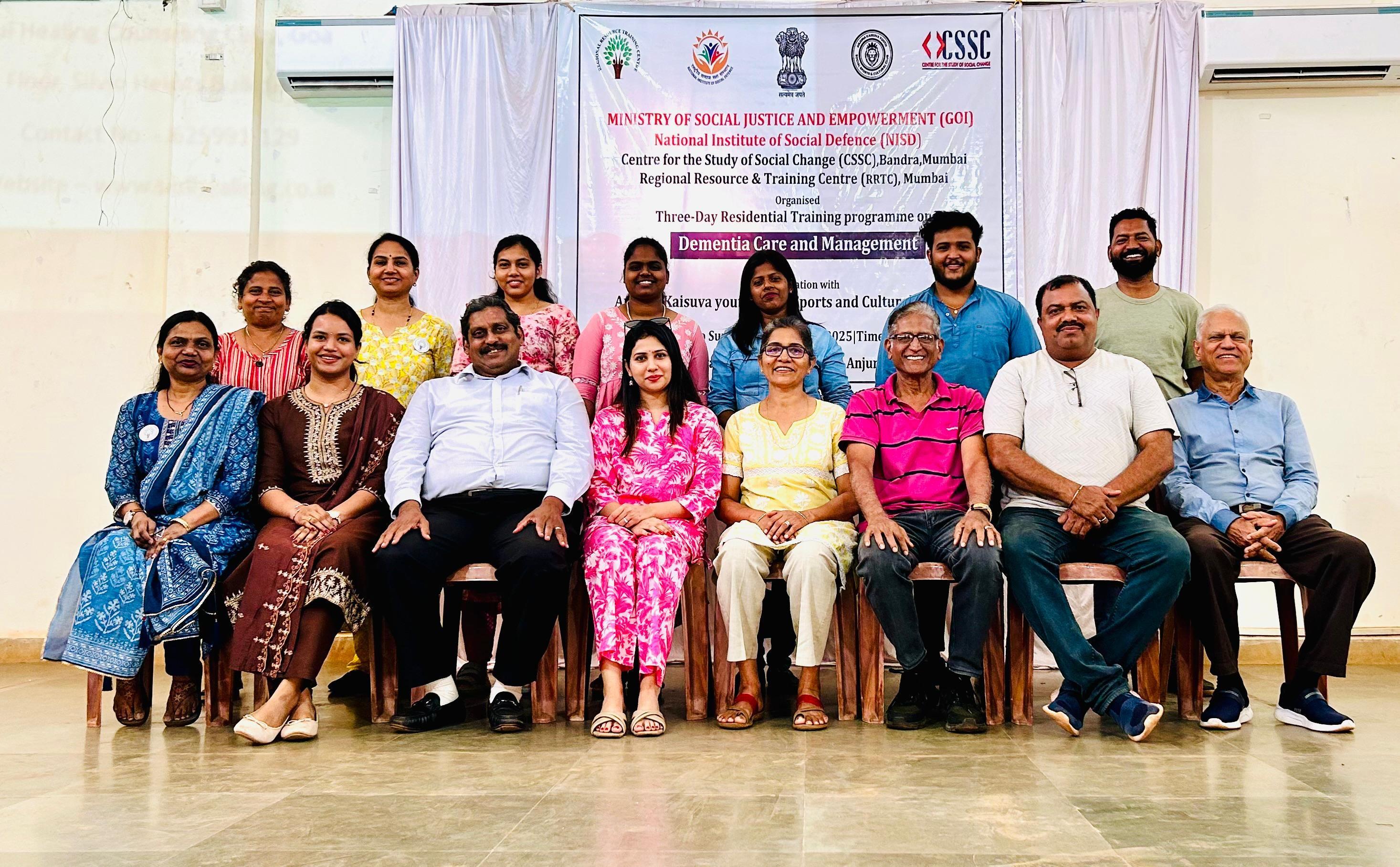
Completed 3-day Dementia Care Training by MSJE, NISD & CSSC-RRTC at Anjuna, Goa (Feb 14-16, 2025)
Like many pioneers in their respective fields, Dr. Nidhi Agni has faced numerous challenges throughout her career. One of the primary obstacles she has encountered is the lack of awareness and understanding of occupational therapy among the general public and even within the medical community. Many people remain unaware of how occupational therapy differs from other rehabilitation disciplines, leading to underutilisation of its benefits. To address this challenge, Dr. Agni has taken proactive steps in promoting occupational therapy through various platforms. By engaging with healthcare institutions, she has successfully highlighted the critical role of occupational therapy in diverse settings, from paediatric development to workplace ergonomics.
Another challenge she has tackled is the emotional and psychological toll that therapy can take on both patients and therapists. Rehabilitation is often a long and arduous journey, and setbacks can be discouraging. However, Dr. Agni’s unwavering optimism and motivational approach have helped her patients and their families stay resilient in the face of adversity.
Looking ahead, Dr. Nidhi Agni aims to further expand her contributions to the field of occupational therapy. She envisions a future where therapy services are seamlessly integrated into mainstream healthcare, ensuring that individuals from all walks of life have access to the support they need.
Dr. Nidhi envisions to be a academician , a mentor and contribute to the young generation of OTs through education and demonstration of practical clinical skills , contribute to the growth of OT through translating evidence based research into practice guidelines. Dr. Nidhi envisions a future where everyone can access OT services and support through healthcare.

through occupational interventions.
Dr. Nidhi Agni’s journey as an occupational therapist is a testament to her dedication, compassion, and relentless pursuit of excellence. Her work has transformed the lives of many individuals, helping them regain independence and confidence in their abilities. Through her innovative approaches, advocacy efforts, and commitment to education, she has positioned herself as a leader in the field of occupational therapy. As she continues to push boundaries and redefine rehabilitation practices, Dr. Agni’s impact will undoubtedly leave a lasting legacy. Her story serves as an inspiration for aspiring therapists and a beacon of hope for those seeking a path to recovery and independence. The future of occupational therapy is bright with professionals like Dr. Nidhi Agni leading the way.



Occupational Health Physician
Dr. Saroj Swapnil Salelkar, a trailblazing Occupational Health Physician, Public Health Specialist, and author, integrates holistic healing, advocacy, and innovation to transform healthcare, empower patients, and promote preventive medicine.
Dr. Saroj Swapnil Salelkar is an Occupational Health Physician, Public Health Specialist, Researcher, Speaker, and Bestselling Author with nearly two decades of experience in the health sector. Her journey has been both challenging and fulfilling, marked by her role as the first lady doctor in Goa's mining industry, where she championed occupational health for industrial workers. Dr. Salelkar also contributed significantly as part of the Technical Support Unit of the Goa State AIDS Control Society, serving as a Master Trainer for HIV, and conducting training for healthcare professionals, NGOs, high-risk individuals, and the general public.
Beyond her professional achievements, Dr. Salelkar is passionate about storytelling, spirituality, and public speaking. These interests inspired her to write The Arjuna in Me, an inspirational fiction based on the teachings of the Bhagavad Gita. Her voice has been featured on Goa Doordarshan, All India Radio, newspapers, magazines, and scientific journals.
She takes pride in being a lifelong learner, a voracious reader, and a member of the Air Force Wives Association for over five years. She believes in holistic healing that nurtures the mind, body, and soul, which she incorporates into her professional and personal endeavours.
Dr. Salelkar’s journey into medicine was deeply influenced by her own health struggles as a child. Repeated bouts of bronchitis and the dedication of doctors in her treatment ignited her passion for medicine. Her specialisation in Public Health was driven by the immense scope of the field, extending beyond individual treatment to shaping policies and conducting impactful research.
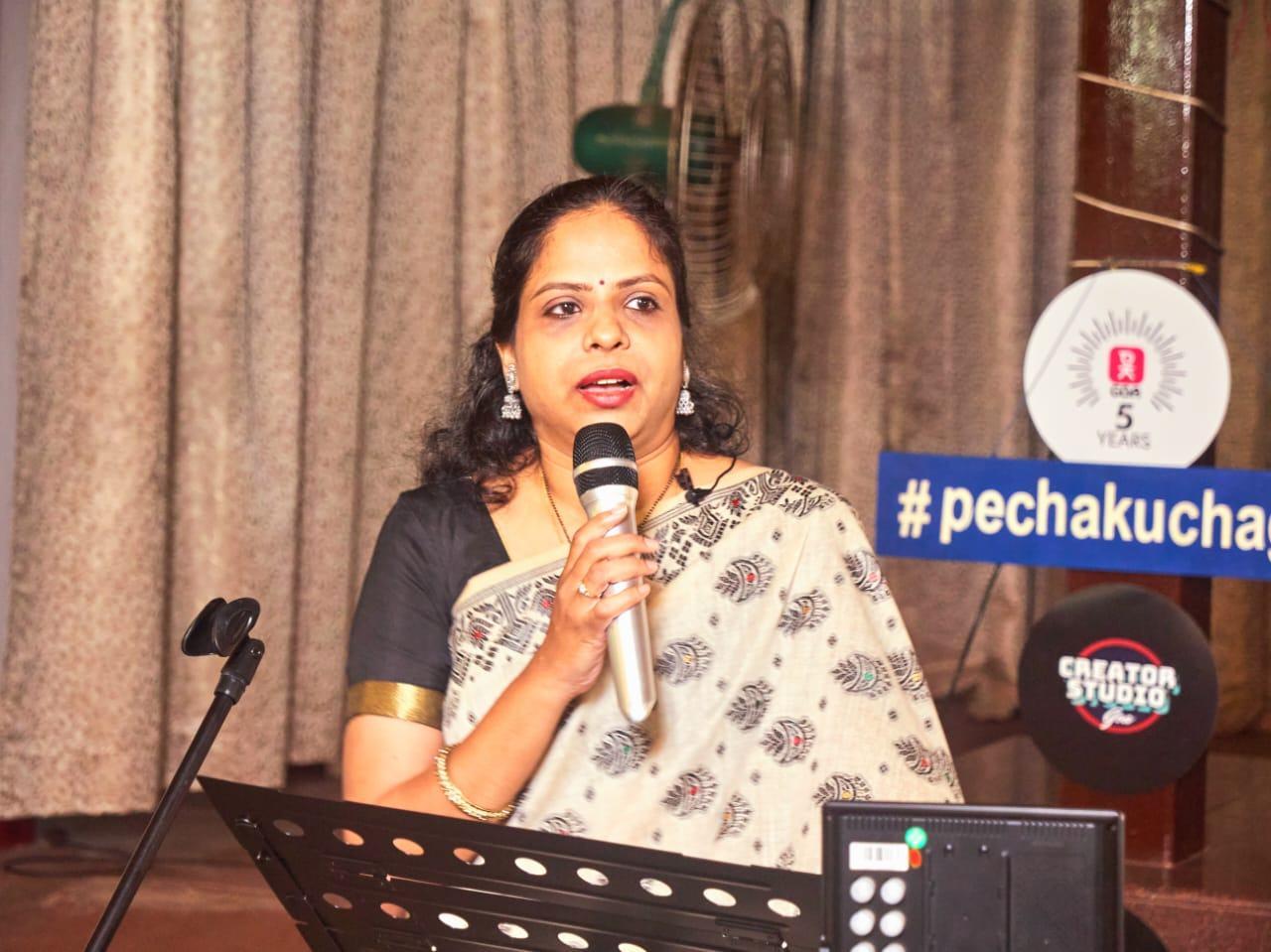
Her work with industrial workers led her to specialise in Occupational Health, focusing on workplace health challenges and preventive care. Her dedication stems from a passion for holistic healthcare that ensures individuals receive comprehensive attention and support.
For Dr. Salelkar, patient care transcends treating illnesses—it's about understanding the individual behind the condition. As a general physician and family doctor, she views herself as a guide, helping patients navigate their health journeys with compassion, education, and empowerment.
Her firsthand experiences with asthma and postpartum depression have shaped her empathetic approach to care. By integrating mindfulness and spirituality, Dr. Salelkar emphasises the importance of healing the mind, body, and soul together.
Dr. Salelkar believes an informed patient is an empowered patient. She ensures her patients are actively involved in their treatment plans by explaining medical conditions and options in relatable terms. She encourages shared decision-making and provides practical, actionable advice tailored to their unique needs.
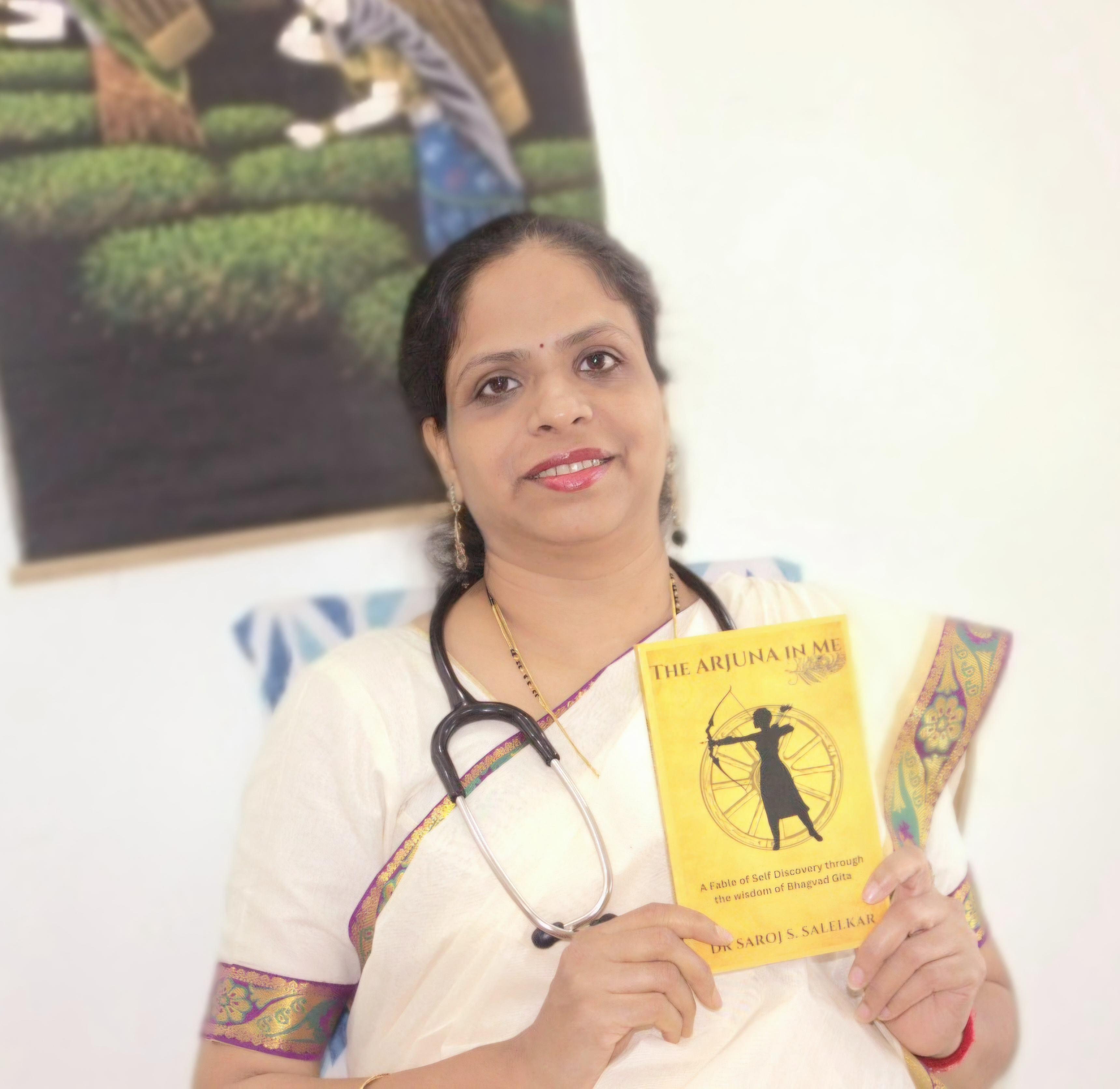
dr Saroj with her book
Medicine is constantly evolving, and Dr. Salelkar actively incorporates advancements into her practice. From integrating emerging research to emphasising holistic well-being, she combines scientific progress with lifestyle modifications to provide accessible, patientcentred care.
Dr. Salelkar’s role as the first lady doctor in Goa’s mining industry was both groundbreaking and challenging. Earning the trust of industrial workers required resilience, dedication, and a commitment to excellence. Over time, her knowledge and compassion earned her the respect of the community.
Her work with the Goa State AIDS Control Society required addressing cultural barriers and stigma around HIV. Through clear communication and empathetic education, Dr. Salelkar successfully built awareness and acceptance in diverse audiences.
Witnessing patients with advanced illnesses due to late detection has been a profound challenge. These cases strengthened her

resolve to advocate for early detection, prevention, and health education, particularly for women and young adults.
For Dr. Salelkar, the most rewarding aspect of her career is making a real difference— whether by treating illnesses, providing guidance, or inspiring patients to make positive lifestyle changes. Beyond clinical care, she finds fulfilment in mentoring, public speaking, and writing. Her book The Arjuna in Me and her work in health awareness and training programs reflect her dedication to empowering individuals and communities.
Two cases left an indelible mark on her journey—a woman with advanced breast cancer who prioritised her family over her health and a young man with oesophageal cancer due to tobacco use. These stories reinforced the critical need for self-care, early detection, and lifestyle changes, fuelling her advocacy for preventive health.
Reflecting on her career, Dr. Salelkar notes how advancements in technology and innovation have transformed healthcare. From manual methods to data-driven approaches, medicine has become more precise, accessible, and preventive. Looking to the future, she envisions an increased emphasis on holistic well-being, where medical science integrates mindfulness, spirituality, and sustainable practices to foster healthier communities.
Dr. Saroj Swapnil Salelkar’s journey is an inspiring testament to resilience, dedication, and the profound impact of a compassionate approach to healthcare. From breaking barriers in occupational health to empowering communities through education and advocacy, her work continues to create ripples of healing and transformation.

Holistic Health Practitioner
Dr. Vyoma Shanbhag, a third-generation homeopath, pioneered holistic hormonal healthcare through her Hormonal Thrive Method, transforming women's lives by addressing root causes of PCOS, thyroid disorders, and infertility.
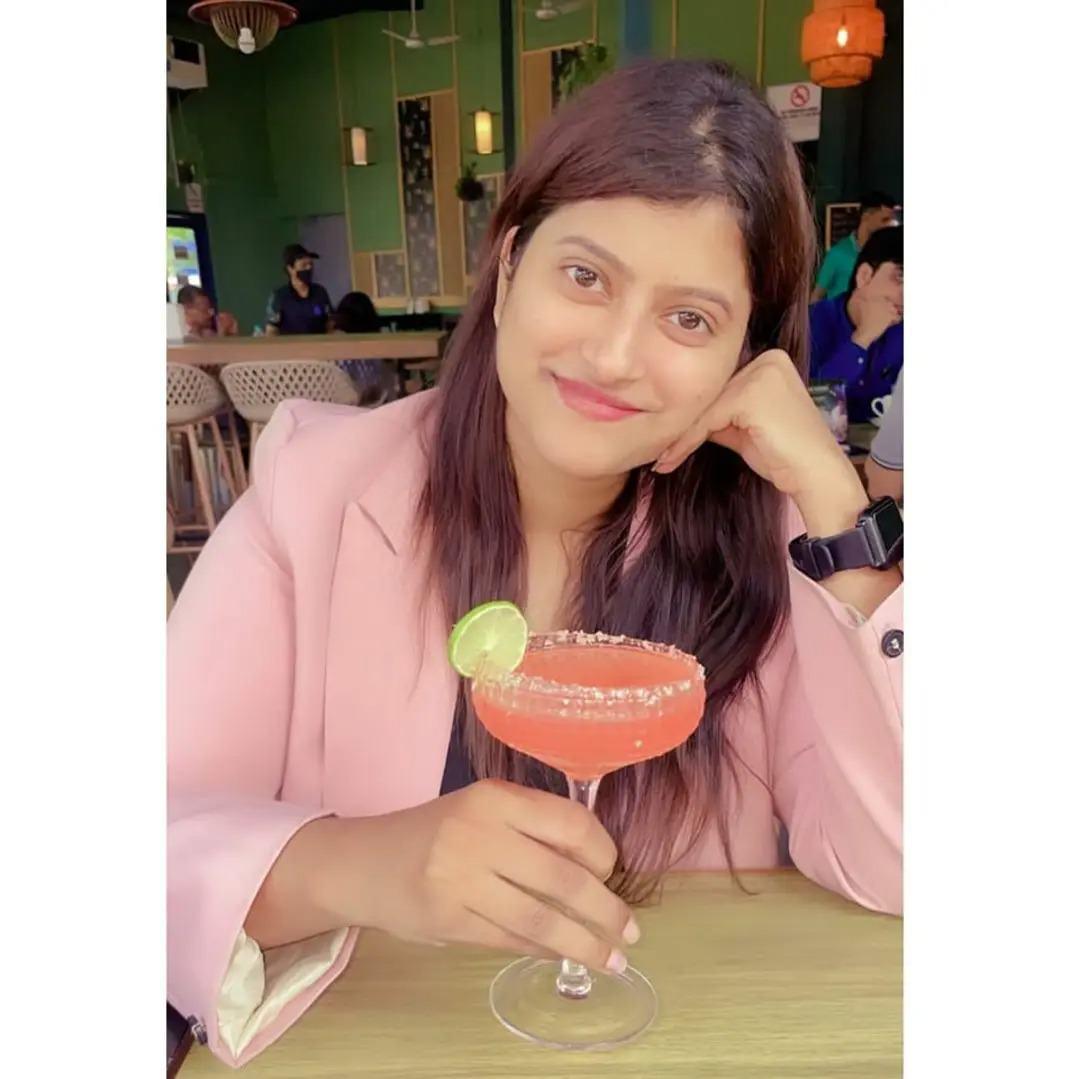
From a young age, Dr. Vyoma Shanbhag was immersed in the world of homeopathy. As a third-generation homeopath, she grew up surrounded by conversations about complex medical cases and their remarkable recoveries. Her family's deep-rooted commitment to healing not only inspired her but also instilled in her a profound sense of purpose.
The passion for homeopathy was passed down through generations, and the dinner table discussions about challenging cases and miraculous cures naturally guided her towards this field. However, it was her personal battle with hormonal imbalances that truly defined her path and gave her a unique perspective on patient care.
Although Dr. Vyoma had a strong foundation in homeopathy, her real test came when she was diagnosed with PCOS. This condition took a significant toll on her mental and physical well-being, leaving her frustrated and searching for answers. She explored various
treatments and different schools of medicine, yet none provided the relief she desperately sought. Determined to take control of her health, she embarked on an extensive research journey. She studied nutrition, medicine, and lifestyle modifications, eventually formulating the Hormonal Thrive Method, a holistic approach that successfully healed her. This personal victory, however, brought a startling realisation—hormonal disorders like PCOS, thyroid dysfunction, and infertility were widespread, yet they remained largely undiagnosed or inadequately addressed. Women were often dismissed with superficial advice like “just lose weight,” while the real underlying issues—gut health, inflammation, sugar regulation, and even emotional trauma—were ignored. Recognising this gap in healthcare, Dr. Vyoma decided to dedicate her life to revolutionising the way hormonal imbalances were treated.
To make a lasting impact, Dr. Vyoma earned a Bachelor of Homeopathic Medicine and Surgery and specialised in Advanced Nutrition and Dietetics for Hormonal Issues. This blend of homeopathy and modern nutrition made her treatments more effective.
However, convincing patients to choose holistic wellness over quick pharmaceutical fixes was challenging. Yet, she remained steadfast, believing true healing comes from addressing root causes, not just suppressing symptoms.
Dr. Vyoma firmly believes that treating a condition is not just about prescribing medicine—it’s about transforming a patient’s entire life. Every individual brings with them a unique combination of lifestyle choices, emotional burdens, and dietary habits that contribute to their health issues.
Her approach is deeply personal, aiming to reshape lives rather than merely alleviating symptoms. She works closely with her patients, helping them understand how their daily habits impact their health and guiding them through sustainable changes. Through mutual goal-setting, she ensures that every treatment plan is a shared journey rather than a one-sided prescription. This collaborative approach not only empowers her patients but also enhances their commitment to long-term well-being.
As medical science continues to evolve, Dr. Vyoma remains dedicated to staying at the forefront of new research and methodologies. She actively participates in advanced courses and integrates the latest scientific findings into her practice.
By continuously updating her knowledge, she ensures that her patients benefit from the most effective and innovative treatments available. This commitment to lifelong learning sets her apart and strengthens her ability to provide world-class hormonal healthcare solutions.
For Dr. Vyoma, the true reward lies in witnessing her patients’ transformations. Every success feels like a personal victory— whether reversing PCOS, alleviating thyroid disorders, or helping couples overcome infertility.
One memorable case involved a young woman with lifelong PCOS, struggling with missed periods, depression, weight gain, and acne. Labeled lazy despite her efforts, she faced low self-esteem. Under Dr. Vyoma’s care, she lost 17 kgs, regained her health, secured a stable job, and found a fulfilling relationship. Seeing her thrive reaffirmed Dr. Vyoma’s dedication and drive to help more women facing similar challenges.
The biggest challenge Dr. Vyoma has faced in her career is shifting the traditional perception of healthcare. In the past, people sought medical attention only for prescriptions and immediate relief. However, the focus is now shifting towards complete wellness—an approach that addresses lifestyle, mindset, and long-term health rather than just temporary symptom management. More people are investing in their well-being, recognising that sustainable health requires more than just medication. Wellness is no longer an abstract concept; it is the future of healthcare, and Dr. Vyoma is at the forefront of this movement.
For young professionals entering the medical field, Dr. Vyoma offers one crucial piece of advice: never stop learning. Confidence and continuous education are key to staying relevant and making a meaningful impact. She encourages new doctors to seek guidance when needed, bring their own unique touch to their practice, and, most importantly, build genuine connections with their patients. A doctor who truly cares and engages with their patients creates a far greater impact than one who merely prescribes treatments.
Despite her demanding profession, Dr. Vyoma has mastered the art of balancing her personal and professional life. She firmly believes that a doctor who neglects their own well-being cannot provide the best care to their patients. By prioritising her health, maintaining strong personal relationships, and setting clear boundaries, she ensures that she remains energised and focused. She takes breaks when necessary, allowing herself time to recharge so she can return to her practice with renewed passion and commitment.
Looking ahead, Dr. Vyoma has ambitious goals for both her patients and her professional growth. She envisions a future where women across the world have easy access to quality hormonal healthcare. Through online consultations, she plans to extend her reach to the farthest corners, ensuring that no woman is left struggling with undiagnosed hormonal disorders. Furthermore, she dreams of building a state-of-the-art wellness centre— a sanctuary where women can receive holistic care tailored to their unique needs. This facility would combine homeopathy, nutrition, mental health support, and lifestyle coaching to provide comprehensive healing under one roof.
Dr. Vyoma Shanbhag’s journey is not just about being a doctor—it is about being a catalyst for change. She has transformed her personal struggles into a mission that empowers thousands of women to reclaim their health. Through her Hormonal Thrive Method, she has proven that healing goes beyond medication; it requires a deep understanding of the mind, body, and lifestyle. As she continues to break barriers and redefine wellness, Dr. Vyoma remains a beacon of hope for women battling hormonal disorders. Her story is a testament to the power of perseverance, education, and an unwavering commitment to improving lives.
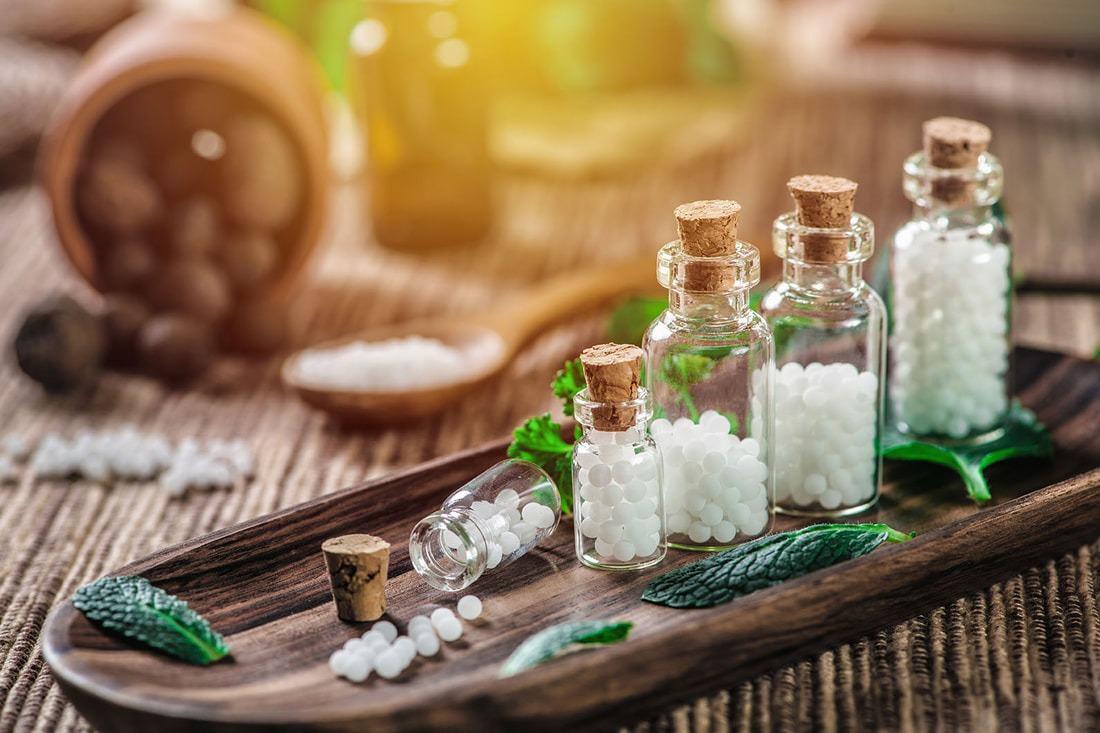

Chef Md Shahid Hossain – Executive Chef, Taj Cidade de Goa, Horizon, Dona Paula, Goa advocates for superfoods, highlighting their nutritional, culinary, and sustainable benefits. He encourages mindful eating by creatively integrating these nutrient-dense ingredients into daily meals.
Article & Images by: Taj, Cidade de Goa
In today’s fast paced world, food is not just about taste and presentation but also about nourishment. A combination of convenience and nutrition is a hard balance to maintain where convenience often wins. The game changer could be incorporating superfoods into our daily meals. Superfoods, known for their dense nutrient profiles, offer a variety of health benefits while adding vibrancy.
Let’s explore why integrating these powerful ingredients into our cooking is a necessity rather than a trend.
Superfoods are packed with vitamins, minerals, antioxidants, and essential nutrients that support overall health. Ingredients like kale, spinach, and quinoa provide fibre and protein, while berries, nuts, and seeds offer antioxidants and healthy fats. Including these in daily meals helps ensure a well-balanced diet that meets nutritional needs without compromising on flavour.
As a chef, I always consider the long-term health benefits of the dishes I create. Superfoods like garlic, turmeric, and ginger have anti-inflammatory and immune-boosting properties. Consuming them regularly can help ward off colds, infections, and even chronic diseases such as diabetes and heart conditions. A simple way to integrate these ingredients is through soups, teas, and spiceinfused meals.
Superfoods are not just about nutrition; they add depth to the culinary experience. Take avocados, for example—their creamy texture enhances salads, smoothies, and toast. Chia seeds add a delightful crunch to yogurt and puddings, while fermented foods like kimchi and miso bring umami and depth to various dishes. Using these ingredients creatively can elevate ordinary meals to extraordinary gastronomic delights. Gut health is a priority in modern nutrition, and superfoods play a crucial role in maintaining a healthy digestive system.
Probiotic-rich foods like yogurt, kefir, and sauerkraut promote good gut bacteria, which aid digestion and enhance nutrient absorption. Fibre-rich foods such as flaxseeds and oats also keep the digestive system functioning smoothly. As a chef, I often incorporate these into breakfast and snacks for a balanced start to the day.
Sustainability is a growing concern in the culinary world. Many superfoods, such as lentils, quinoa, and leafy greens, are sustainable and require minimal resources to grow. They offer an excellent alternative to processed and unhealthy foods, reducing the carbon footprint while maintaining delicious and nutritious meal options. Superfoods are versatile and can be easily integrated into soups, salads, entrees, and desserts, making them a staple in every kitchen.
A diet rich in superfoods naturally promotes healthier eating habits. When we prioritise nutrient-dense ingredients, we gradually move away from processed foods high in artificial additives and sugars. Cooking with superfoods encourages mindful eating and fosters a greater appreciation for natural ingredients. As a professional, I always advocate for fresh, whole foods that nourish both body and soul.
Not just the culinary trends but lifestyle choices are what benefits our health, wellbeing, and the planet. As a chef, I encourage home cooks to experiment with these nutrient-dense ingredients, use them into everyday meals in creative and delicious ways. Whether it’s adding a handful of berries to breakfast, using turmeric in curries, or blending spinach into smoothies, small changes can lead to significant health benefits.
Let food be thy medicine and nourish your mind, body and soul.
By Chef Md Shahid Hossain – Executive Chef, Taj Cidade de Goa, Horizon, Dona Paula, Goa
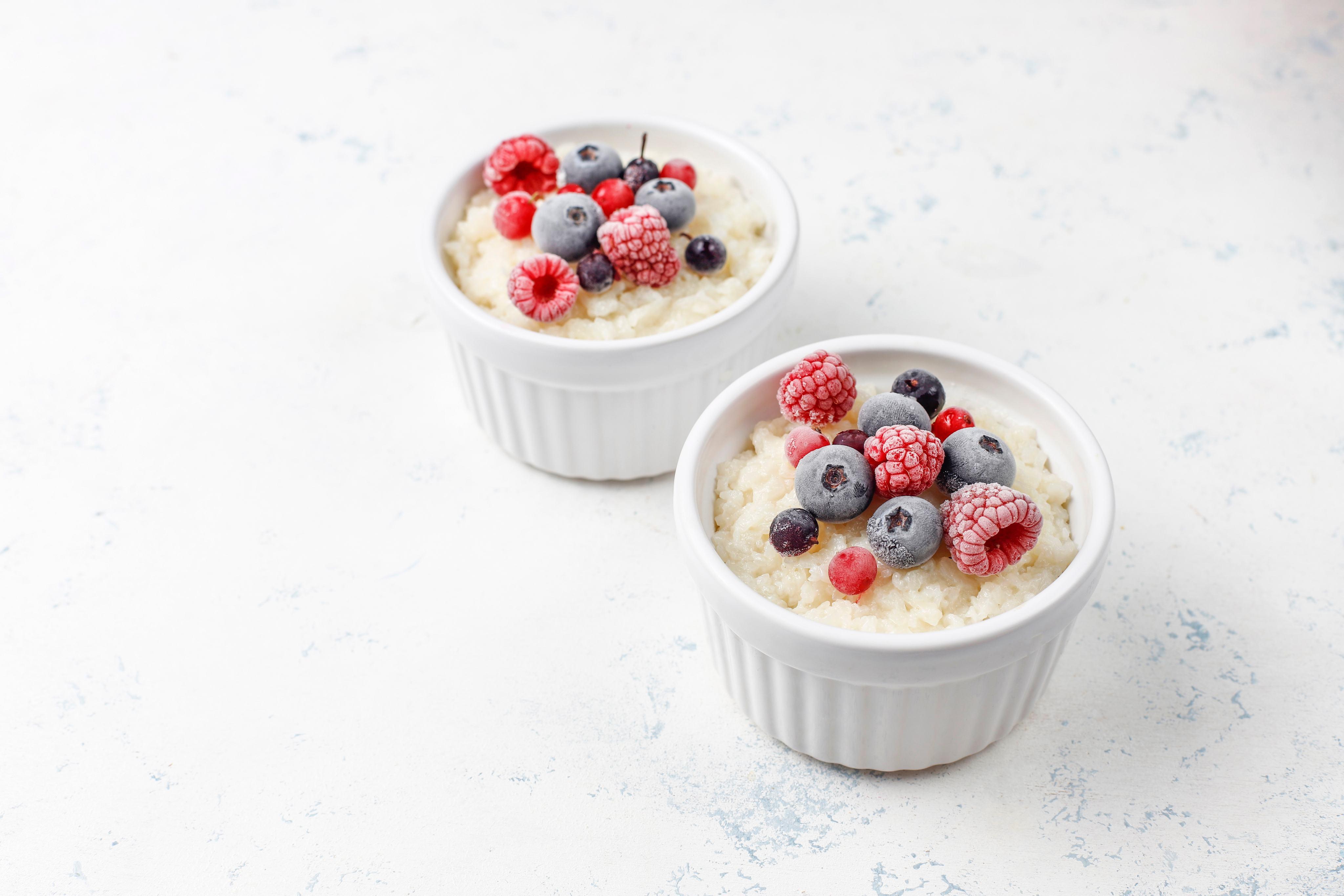
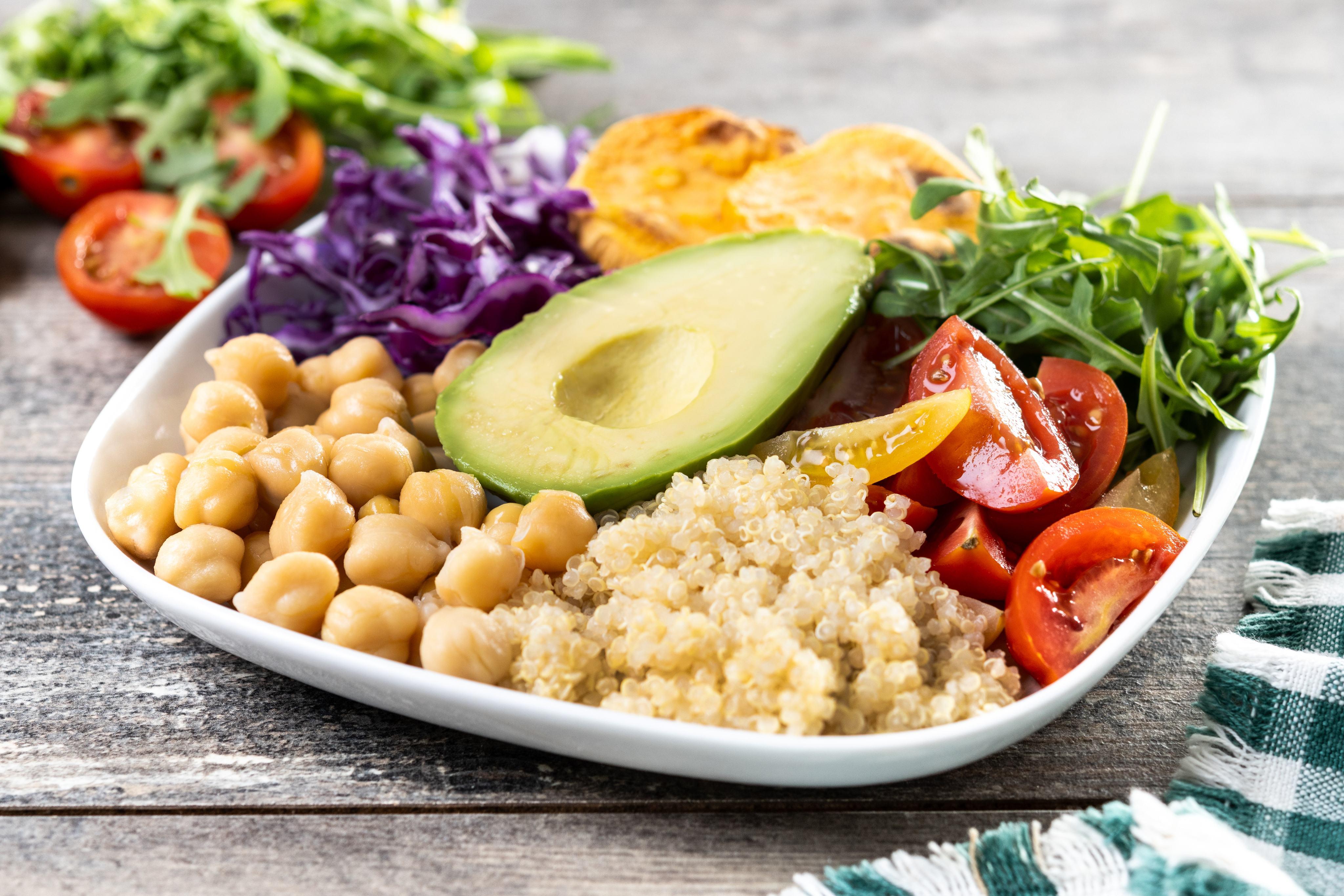
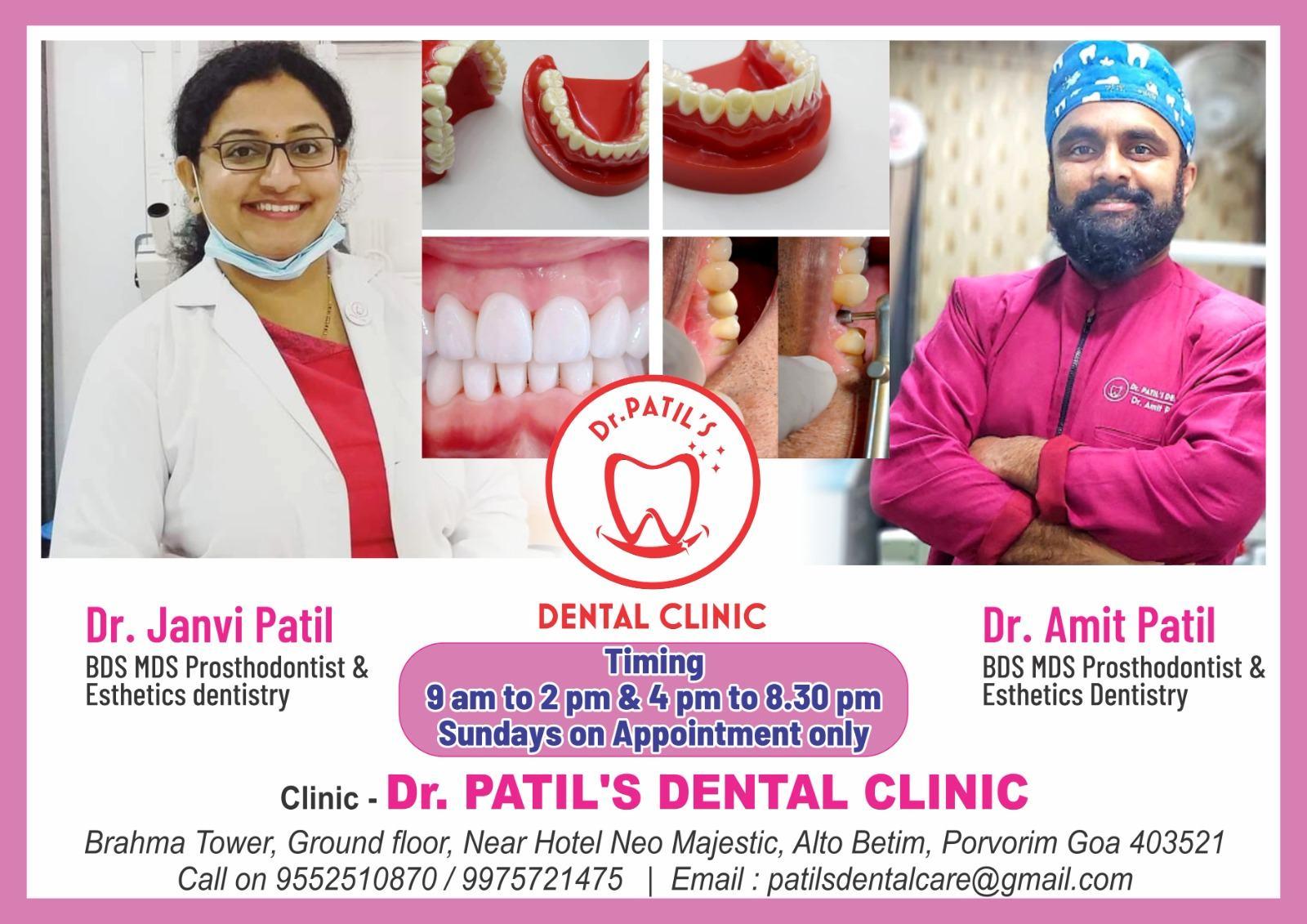

authored article

Dr. Joline emphasises diet and lifestyle for endometrial health, recommending superfoods, hydration, stress management, and supplements to support implantation and fertility for a healthy pregnancy.
When trying to conceive, one of the crucial factors in achieving a successful pregnancy is ensuring that your body is fully prepared to support implantation. Implantation is the process where a fertilised egg attaches to the lining of the uterus (endometrium). A healthy, thickened endometrium is key to providing the nutrients and environment necessary for this attachment to happen. Thankfully, there are natural ways to support your endometrium, and one of the most effective methods is through diet.
Before diving into dietary recommendations, it’s essential to understand the role of the endometrium in the implantation process. Each month, your endometrium thickens in response to hormonal signals in preparation for a potential pregnancy. If conception occurs, the fertilised egg will travel down the fallopian tube and into the uterus, where it will need a welcoming, nutrient-rich environment to attach successfully. If the endometrial lining is too thin, it may not be able to support implantation, leading to infertility or early miscarriage.
Therefore, it's critical to maintain a healthy endometrial lining, and diet plays an integral part in supporting this process.
Certain foods contain nutrients that help improve the quality of the endometrial lining, promote hormonal balance, and boost overall fertility. Here are some foods that can naturally support your body’s ability to support implantation:
Omega-3 fatty acids are essential for hormonal health and promoting blood flow to the uterus, which is crucial for a thick, healthy
endometrium. Including sources of omega-3 fatty acids in your diet can help increase blood circulation and reduce inflammation, both of which are important for successful implantation
of omega-3
Flaxseeds, chia seeds, walnuts, and fatty fish like salmon, mackerel, and sardines.
Leafy Greens and Vegetables: Rich in Folate Folate, a type of B vitamin, is vital for cell division and growth. It helps to develop a thick endometrial lining and promotes overall fertility. Folate is also important in reducing the risk of neural tube defects in a developing foetus
Best sources of folate: Spinach, amaranth, fenugreek, gourds, and root vegetables.
Grains:
Whole grains help stabilise blood sugar levels and prevent insulin spikes, which can negatively affect fertility and hormone production. A steady insulin level supports proper hormonal balance, which, in turn, aids in developing a healthy endometrial lining.
Best sources of whole grains: whole wheat, single polished rice, and millets.
Vitamin D-Rich Foods
Vitamin D plays a crucial role in regulating your menstrual cycle and hormone production. A deficiency in vitamin D can impair the implantation process, making it harder to achieve pregnancy. Ensuring you get enough vitamin D may improve the quality of your endometrial lining
Best sources of vitamin D: Dairy, egg yolks, fatty fish, and sunlight (when exposure allows).
Selenium affects thyroid gland function. Additionally, it is an antioxidant that participates in the reduction of oxidative stress. Selenium possibly influences the growth and maturation of oocytes. Therefore, an adequate supply of selenium is necessary.
Magnesium takes part in glucose metabolism; hence, it may be vital for women with PCOS and metabolic disorders. The proper serum concentration of magnesium is probably associated with increased insulin sensitivity in tissues.
Antioxidants help protect cells from oxidative stress, which can damage the endometrium and reduce fertility. Eating a variety of antioxidant-rich fruits and vegetables can support healthy uterine function and overall reproductive health
Best sources of antio idants: Berries (blueberries, strawberries, raspberries), fruits, tomatoes, and carrots.
In addition to food, certain herbs and supplements have been shown to promote endometrial health and support implantation. However, before taking any new herbs or supplements, always consult with your healthcare provider to ensure they are safe for you.
Shatavari is beneficial in female fertility. It enhances folliculogenesis and ovulation and helps regulate endometrial thickening and implantation.
Vitamin E is a powerfu antioxidant that supports the repair and growth of the endometria ining. It a so he ps reduce inflammation, improving overa uterine hea th
Whi e eating nutrient-rich foods is essentia , other ifesty e factors a so p ay an important ro e in optimising your chances of successfu imp antation. These inc ude
Both excessive weight and eing underweight can affect hormona a ance, making it harder for your ody to support imp antation. Aim for a hea thy, a anced weight to optimise ferti ity
Chronic stress can interfere with hormone production and ovu ation. Practice stressreduction techniques such as yoga, meditation, deep reathing, or spending time outdoors
Regu ar, moderate exercise can improve ood flow to the uterus, which he ps maintain a hea thy endometria ining. Avoid intense workouts that may disrupt your hormona a ance
Minimise exposure to environmenta toxins and chemica s that cou d negative y impact ferti ity.
This inc udes avoiding smoking, imiting a coho consumption, and reducing exposure to pesticides and p astic chemica s.
Don’t overlook the importance of staying hydrated! Drinking adequate water helps to maintain the flow of nutrients to the endometrial lining and supports overall health. Dehydration can negatively affect the quality of your cervical mucus, which can further impact implantation. Make sure to drink enough water throughout the day to keep your body functioning optimally.
Supporting your endometrial health through a balanced, nutrient-dense diet is one of the most effective natural strategies for optimising your chances of successful implantation. Incorporate healthy fats, whole grains, leafy greens, and antioxidant-rich foods into your
meals. Additionally, consider incorporating herbs and supplements like maca root and red clover, which can provide extra support for your reproductive system.
Lifestyle changes, such as stress management and regular exercise, also play a significant role in preparing your body for pregnancy.
Remember that conception can take time, and everyone’s journey is unique. By nourishing your body with the right nutrients and maintaining a healthy lifestyle, you’re supporting your body in the best way possible for a healthy pregnancy.
Contact: +91 9764240528 Visit us at https://drjoline.com


Goa faces water challenges in 2025 due to contamination, over-extraction, and climate change, impacting health. Solutions include desalination, rainwater harvesting, and improved infrastructure for sustainable clean water access.
Goa, known for its pristine beaches and vibrant tourism industry, has long faced challenges in ensuring equitable access to clean water. Despite being one of India’s most developed states, issues like contamination, erratic supply, and increasing demand continue to threaten water security. In 2025, clean water access remains a crucial factor in public health, impacting sanitation, disease control, and overall well-being in both urban and rural areas of the state. This article explores the current challenges, health impacts, and innovative solutions improving access to clean water in Goa.
Although Goa receives abundant rainfall during the monsoon, water availability remains inconsistent due to several factors:
Goa’s population growth, coupled with the booming tourism industry, has placed immense pressure on water resources
Increased reliance on groundwater extraction in coastal regions has led to saline intrusion, making drinking water unsuitable.
2. Co tami a o of Water Source
Industrial effluents, mining runoff, and sewage discharge have polluted rivers and wells, particularly in mining belts like Bicholim and Sanguem
The presence of heavy metals like lead and arsenic in some areas poses serious health risks
Poor sanitation facilities in rural areas contribute to waterborne diseases.
3. Climate Cha ge a d Erra c Weather Patter
Longer dry spells are reducing freshwater availability, increasing dependency on stored water.
Rising sea levels pose a risk of saltwater intrusion into groundwater, particularly in low-lying coastal villages
Water supply in many Goan villages remains irregular, with some areas receiving water only for a few hours per day
Leakage and wastage due to poorly maintained pipelines exacerbate shortages.
Impact of U afe Water i Goa
1. Waterbor e Di ea es
ontaminated water is a leading cause of illnesses in Goa, particularly in monsoon months when open drains overflow. ommon diseases include
Diarrhoea and Dysentery – Frequent outbreaks occur in areas with poor sanitation
Hepatitis A and E – aused by the consumption of contaminated water, affecting the liver
Typhoid and holera – ases have been reported in areas with inadequate drinking water facilities
Poor water quality leads to stunted growth and malnutrition in children, as frequent infections hinder nutrient absorption
Schools in some rural areas lack access to clean drinking water, affecting students’ health and attendance
ontaminated rivers and wells contribute to skin infections, eye diseases, and fungal infections, particularly in flood-prone areas.
Desalination Plants: Goa has proposed desalination projects to convert seawater into potable water, especially in coastal areas with water shortages
AI Powered Filtration: Some water treatment plants are integrating AI driven sensors to detect and remove contaminants efficiently
Household Water Purifiers: More residents are investing in RO and UV purifiers to ensure safe drinking water.
Rainwater Harvesting: Government policies now encourage rainwater collection in hotels, housing societies, and public buildings to reduce reliance on groundwater

water leakage and improve distribution
Eco Friendly Wastewater Treatment: Goa is adopting natural bio filters and wetland treatment systems to clean wastewater before reuse
Smart Irrigation: Farmers are using drip irrigation and rain sensors to conserve water in agriculture.
The Goa ater Resources Department has been upgrading old pipelines to reduce
The state government has partnered with NGOs for awareness campaigns on water conservation and hygiene in rural areas
Community-led projects in villages like Chorão and Aldona are reviving traditional water bodies and wells.
Goa’s progress in ensuring clean water access in 2025 is promising, but challenges remain. The state must focus on

Strengthening infrastructure to ensure 24/7 water supply
Strict regulation of industrial waste disposal to prevent pollution
More investment in desalination and water recycling technologies.
Access to clean water is not just about health —it is essential for economic growth, tourism, and environmental sustainability. ith continued efforts, Goa can become a model state in water conservation and health security.
